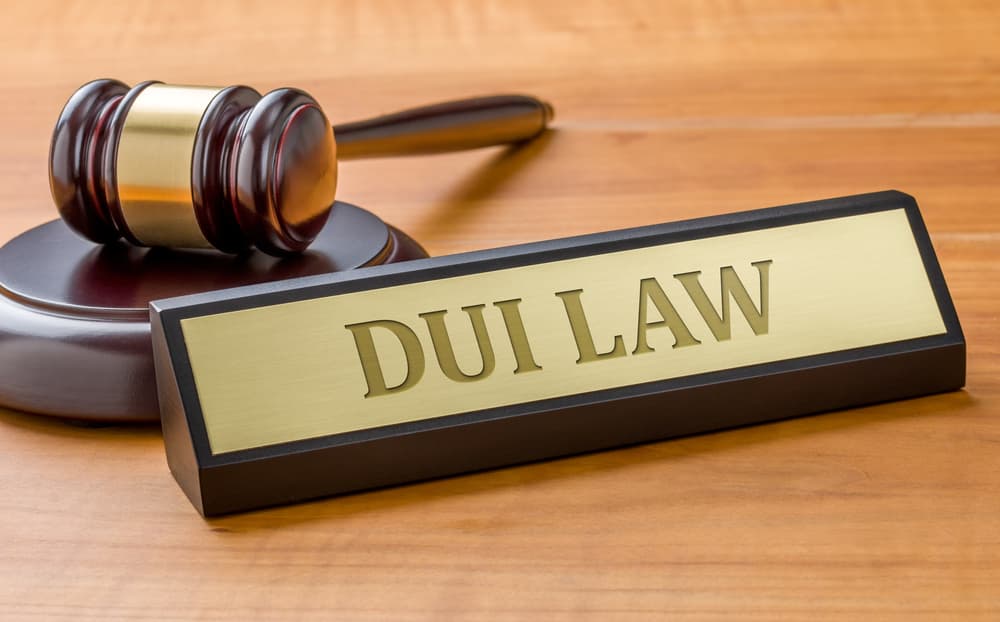
NJ First-Time DUI Offense: What You Can Do to Fight Back
A first-time DUI can be upsetting. If you’re faced with a first-time DUI charge, you may face fines, license suspension, the installation of an ignition interlock device (IID), a commitment to a program at the Intoxicated Driver Resource Center (IDRC), and, in the worst case scenario, 30 days in jail.
However, you can get through the legal process with the help of an experienced DUI lawyer in New Jersey. An attorney who handles DUI cases can often present a defense that can reduce the charge, improve the outcome, or maybe even get an acquittal.
Schedule a Free Initial Consultation Today!
The Arguments a DUI Lawyer Can Raise
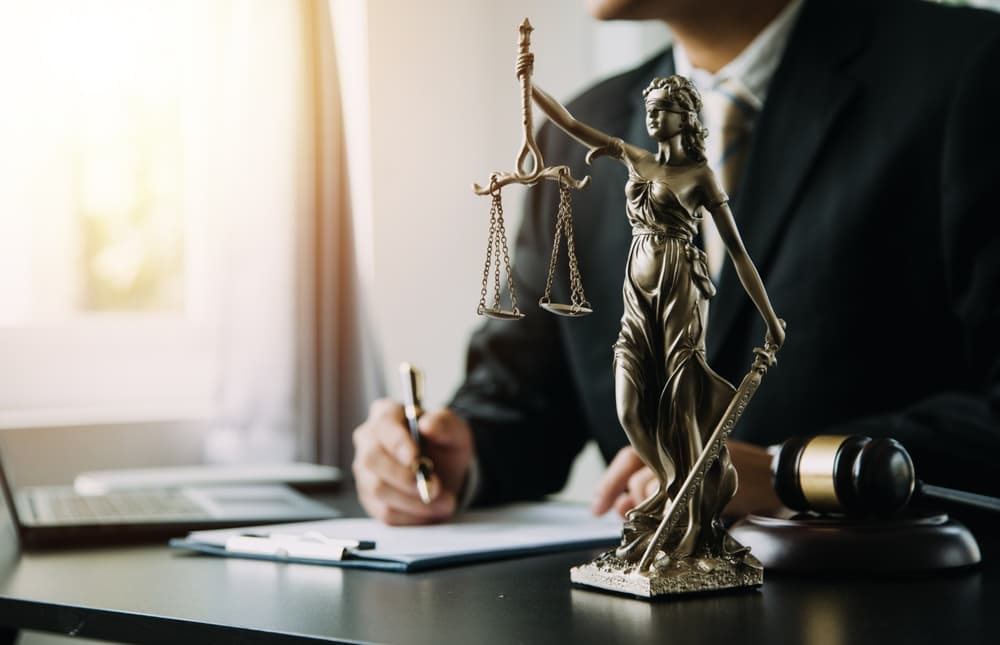
A DUI lawyer will review all the factors of your case to determine the proper strategies for your defense. Below are some arguments a lawyer can raise.
Unlawful Motor Vehicle Stop
The Fourth Amendment and the New Jersey Constitution, Article 1, paragraph VII, allows all citizens the right to be free of unreasonable search and seizure. Therefore, a law enforcement officer must have a legal reason to pull you over or a reasonable suspicion that a crime or motor vehicle offense occurred.
If the state can’t meet the standard, evidence obtained from the stop can be held inadmissible during a trial or in court.
Vehicle Operation as an Issue
The issue of vehicle operation can also be used as a defense. For instance, you may be sitting in your car with the motor running and are getting ready to drive. Or, you could be parked in your car, engine running, but may prove you had no intent to drive away. For instance, your DUI lawyer might argue that you were listening to music or merely got in your car to keep warm. You have to operate the car with the intent to drive to be charged for DUI.
Unable to Provide Enough Evidence
The prosecutor must provide all the evidence for your DUI case. If the state does not share all discovery content and evidence, your DUI attorney may file a motion to compel the other side to produce the required evidence. If the state fails to comply with the resulting court order, it may lead to a dismissal of the case.
An Inaccurate or Invalid SFST
Before you’re arrested for DUI, you may undergo one or more standardized field sobriety tests (SFSTs). These tests include the walk-and-turn, horizontal gaze nystagmus (HGN eye test), and one-leg stand. Law enforcement uses the test results to show intoxication. However, it’s important to note that in New Jersey, HGN eye test results can’t be used against a defendant.
According to the National Highway Traffic Safety Administration (NHTSA), the walk-and-turn test has an accuracy rate of about 66 percent. Other factors, including a defendant’s weight, age, and medical and physical condition, may also alter the validity of SFSTs.
Sometimes, non-standardized field sobriety tests are used to determine intoxication. These tests may include reciting the alphabet backward, counting backward, or touching the finger to the nose. The NHTSA does not endorse non-standardized tests as solid indicators of intoxication.
Your DUI attorney will look at any tests you were given outside the required breathalyzer test to build a defense for your DUI offense.
Mobile Video Recorder (MVR) Evidence
Some police departments take MVR recordings of your vehicle stop and the administration of SFSTs. Videos are used to show your mental and physical condition when you were arrested.
You are entitled to receive a copy of videos and the evidence related to your DUI arrest. Sometimes, videos can be used to prove that you performed better on FSTs than what the officer reported in their police report. Failing to produce the videos or their destruction often leads to a dismissal.
Not Reading Implied Consent Warnings
Anyone who faces DUI in New Jersey must have a standardized statement read to them that was drafted and approved by the state’s Attorney General’s office. This statement must be read in a language the defendant understands. If you’re not an English speaker, failure to read the statement for the implied consent warning in your language may lead to a case dismissal.
Violations of the Miranda Rights
The U.S. Constitution requires a police officer to inform a DUI suspect that they’re under arrest and must advise them of their Miranda Rights. The Rights include the following information:
- You have a right to contact an attorney
- If you can’t afford an attorney, you have a right to court-appointed legal counsel
- You have the right to remain silent
Any statements made after you’re advised of your rights may be used by the prosecutor in a court of law.
Alcotest 7110 Certification Issues
A law enforcement officer who uses the breathalyzer Alcotest 7110 device during an arrest in New Jersey must be trained and certified in the machine’s use. Certifications should be current, and copies should be given to your attorney.
If a law enforcement officer is not certified, the breath test results can’t be admitted in court. The device also must be inspected and recalibrated regularly. This process must be documented and completed within a certain period. Documents are provided at trial to show that the machine was operational when the breath sample was taken. Otherwise, any results from the testing may be held to be inadmissible.
Your DUI lawyer should have in-depth knowledge of how the Alcotest 7110 device should be administered and maintained so any evidence from the device is valid and fair.
Failure to Perform a 20-Minute Observation
The alcohol in your mouth can affect the accuracy of your breath sample. The alcohol may be present if you’re chewing gum or you vomit. Therefore, the Supreme Court requires a 20-minute observation of anyone submitting a breath test. If this isn’t done, the DUI charges may get dismissed.
Incorrect Blood Collection or Blood Test
Law enforcement officers are required to follow specific steps for drawing blood. These procedures are different from those used by hospital or EMT staff members. Failure to follow the right protocol may result in inadmissible results. In addition, the law in New Jersey requires the police to obtain a search warrant before a defendant’s blood can be taken without consent.
Forced to Provide a Blood or Urine Sample
You can’t be forced to submit to a blood or urine sample in New Jersey. Therefore, the evidence may be inadmissible if a suspect is forced to provide these samples. A refusal is only applicable to breath tastes.
DRE Evidence
You can’t drive in New Jersey while under the influence of oxycodone, heroin, or cocaine. Some law enforcement officers receive training to perform Drug Recognition Evaluations (DREs). However, this information is not totally dependable evidence when proving guilt beyond a reasonable doubt.
Medical Conditions
Some medical conditions may negatively impact the prosecutor’s proof of intoxication. That’s because some medical ailments mimic intoxication. For instance, diabetes or a prior ankle or knee injury may replicate drunkenness. Other medical conditions affect the validity of the breathalyzer test. These conditions may include the presence of blood in the mouth, postnasal drip, or gastroesophageal reflux disease (GERD).
Testimonies of Expert and Individual Witnesses
Witness testimony can be used to build a defense, especially when your sobriety and behavior are questioned.
Police Reports
In some cases, inconsistencies in police reports can be used to build a compelling defense.
Contact a DUI Defense Lawyer about Your NJ DUI Case Now
To ensure that your DUI defense covers all the bases, you should always speak with a reputable and knowledgeable DUI lawyer. Learn more about your rights and the defense strategies open to you. Contact a New Jersey criminal defense attorney right away.
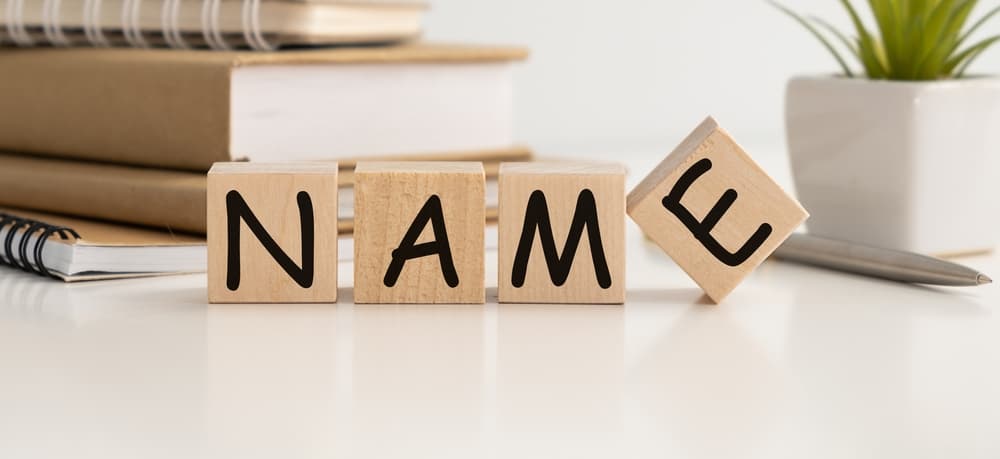
How Can An Attorney Help Me Change My Name Legally?
While changing your name may seem straightforward, it’s still better to ask for a name change attorney’s help to ensure you make things official and go through the steps hassle-free.
Schedule a Free Initial Consultation Today!
The Benefits of Contacting a Name Change Lawyer
Your attorney can help by:
- Making sure all the forms are filled out correctly and filed properly to reduce any problems with delays.
- Advising you on the legal implications of a name change.
- Guiding you if you run into complications or have a criminal history. (Helping with the required criminal background check.)
- Representing you in court and presenting your case effectively.
- Handling the newspaper publication requirement.
- Directing you on updating your name on various documents, such as your state I.D., driver’s license, passport, or financial accounts.
Why go it alone when an attorney can speed up the process and help you stay organized?
Common Reasons Why People Change Their Names
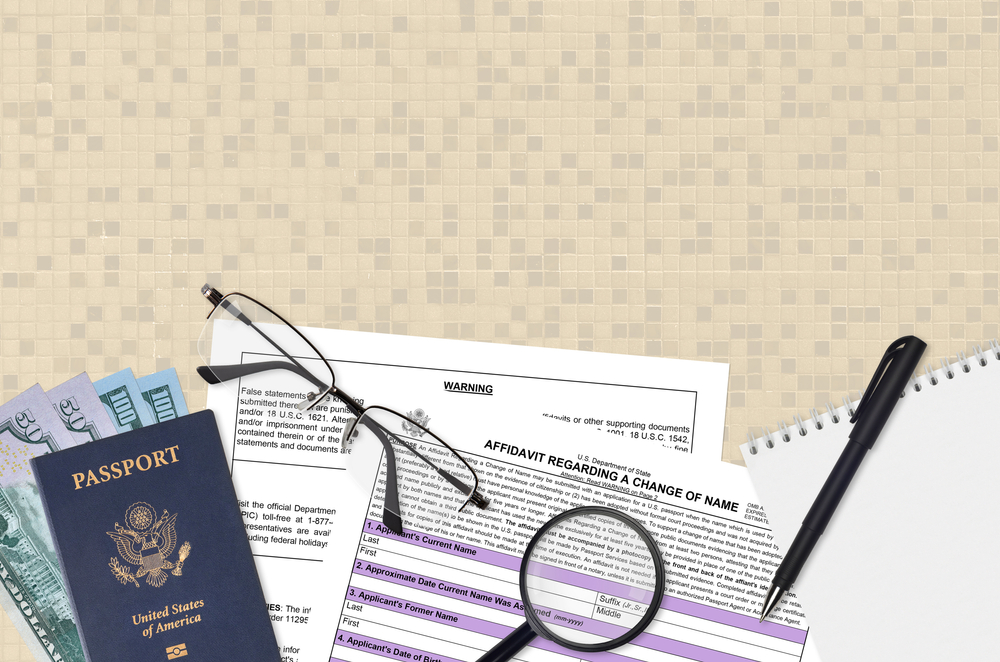
People change their name for one of various reasons, including the following:
- They simply don’t like their birth name. Some people find their name embarrassing if it’s misspelled or mispronounced. It can get tiresome socially to repeatedly correct a person’s interpretation of your name.
- They wish to change their name after a divorce. Some women wish to reclaim their maiden name after they’ve divorced or change their name completely.
- Some husbands wish to take their wife’s surname instead of vice versa. The process is quite simple in some states, while in others, you need to go through a more complicated process.
- In some cases, a mother may want to change their child’s surname to hers if the father is no longer in the picture.
- Some couples may create a new surname by using parts of each other’s name by hyphenating the two last names and making a new joint surname. This can be simple or more detailed, depending on the state. Therefore, it helps to get a lawyer’s advice before you begin.
- Some people want their names to be less ethnic so others find them easier to spell and pronounce. Others may want to reclaim their ethnic heritage by changing their surname to one that’s been lost over time.
- Transgender people may request a name change to reflect the gender they identify with – maybe to the feminine or masculine version of their current name or by choosing a whole new name altogether.
- Some people change their name because of a recent religious conversion or for religious reasons.
- Same-sex partners may choose to share a surname so they can conveniently complete financial or legal paperwork.
- Some families who adopt want a name change so everyone’s last name matches.
Also, you may need a lawyer’s advice if you’re a researcher or other academic professional planning to marry. Changing your name can affect your work and how you’re perceived in academic and scientific journals.
Whatever your reason for a name change, a name change attorney will navigate through the process with more confidence and less conflict. Again, you will spend less time changing your name with an attorney’s assistance. They can efficiently present your case, correctly fill out the paperwork, and make sure all the documents are filed properly. They can also keep you on track after a name change, so you can add your new name to your financial accounts and I.D.s.
Name Change FAQs
Do you have questions about legally changing your name? If so, the following FAQs will help answer your questions. That way, you can contact an attorney and take the necessary steps more easily.
How Long Does a Name Change Usually Take?
On average, it takes about 60 to 90 days to legally change a name.
Is a Court Appearance Required?
It depends on the judge or court managing your case. If a court appearance is necessary, a name change lawyer will prepare for the hearing. They will also answer questions from the court on your behalf.
Should I Change My Name in My State of Birth or in the State Where I Currently Live?
When you submit the legal paperwork for a name change, you should do so where you currently live.
Should I Still Legally Change My Name if I Just Want to Change the Spelling of My First Name?
Whether you make a complete name change or just wish to make a minor change to your first name, middle name, or surname, you still have to go through the legal process.
If a Formal Name Change Necessary If I Only Wish to Correct My Name
If you only wish to correct your name on vital records, it’s best to contact the office of Vital Statistics where you live to find out more about correcting your name.
How Do I Change My Name if I’m Planning to Marry or Get a Divorce?
You don’t need to have your name officially changed through the name change process if you’ve recently married or divorced. You can simply sign the marriage certificate, or if you go through a divorce, you can resume using the prior surname after the dissolution.
How Do I Change My Child’s Last Name If I’m Adopting Them?
A formal legal court-ordered name change is not required if the name change is related to an adoption or paternity action. A child’s name or your name will be changed in connection with the activity.
What Happens if a Person Who Wants a Name Change is Under 18 Years Old?
When a minor requests a name change, both biological parents must consent to the change request. If there’s any objection, the court will decide based on the best interests of the child.
Does a Person Requesting a Name Change Have to Be a U.S. Citizen?
Applicants do not have to be U.S. citizens. Name changes apply to permanent residents and people born in the U.S. However, a permanent resident alien does have to report a name change to the U.S. Department of Homeland Security.
What Happens If the Name Change is Requested Out of Concern for Personal Safety?
When a person changes their name out of concern for their safety, the application for the name change may be sealed or not made available to the public. If there’s a well-founded concern, your attorney can help you with sealing the application.
Contact a Name Change Attorney About the Process Now
Whether you are changing your name to begin a new chapter in your life or you wish to alter a name that is difficult to pronounce, you’ll find it easier to do so with a lawyer’s help.
Contact a name change attorney to streamline and successfully complete the change process. Ensure you get your questions answered and that everything is filled out without difficulty. Schedule an appointment with a name change lawyer today.
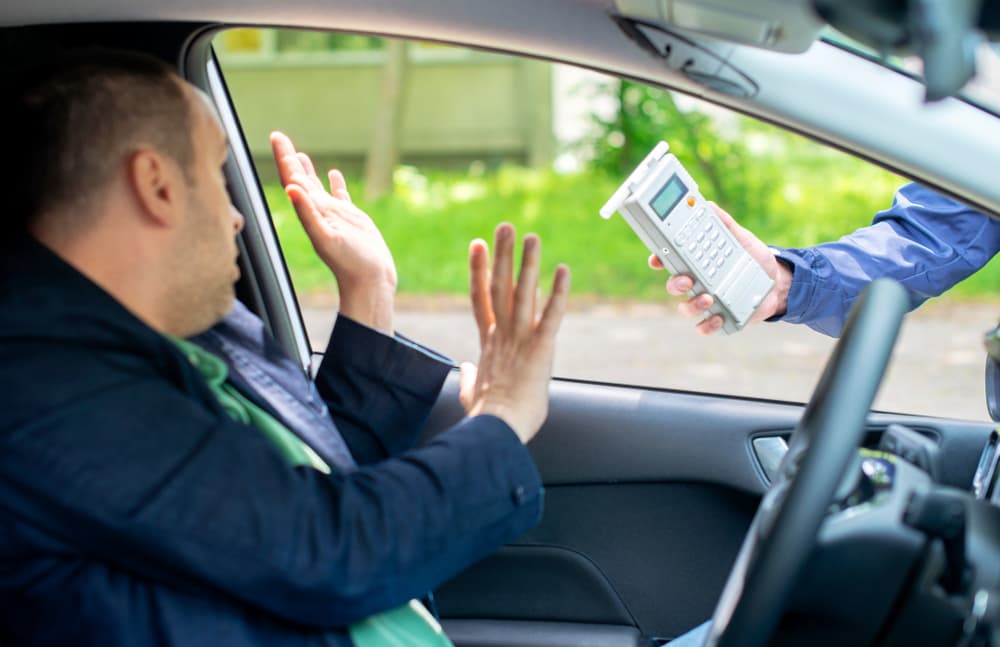
What Happens If You Refuse a Breathalyzer Test?
A Breathalyzer is a required test when you are suspected of DWI. Your refusal to take the test can be used against you in the courtroom and result in the immediate suspension of your driver’s license.
It’s always best to consult a DWI defense attorney if officers stopped you for drunk driving. They can often achieve a better outcome if you’re charged with driving while under the influence of alcohol and/or a refusal of a Breathalyzer.
Schedule a Free Initial Consultation Today!
The Law of Implied Consent
When you’re issued a driver’s license, you give your implied consent, by law, to submit to chemical tests – Breathalyzer, blood test, or urine sample. This lawful consent is a type of trade-off for the privilege of driving a car. Implied consent is, therefore, a permission or an agreement that is not directly expressed but understood.
The Pros and Cons of Taking a Breathalyzer Test
While a refusal to take a breath test does not give a prosecutor concrete proof of your blood alcohol content, an arresting officer can still testify to the smell of alcohol, bloodshot eyes, erratic driving, or unsteadiness on your feet to prove intoxication.
A Breathalyzer is not infallible. Therefore, attorneys can can frequently challenge these tests in court. Refusing a test denotes a consciousness of guilt. If you go ahead and take the test then and are on the borderline of a legal reading (.08 percent BAC), you may still have your case dismissed.
However, if you’re notably drunk, it may be better not to take the test, as you can’t fully challenge the results, even if they’re slightly erroneous. The test, if taken, may show proof that your BAC is well above the legal limit for a DUI/DWI charge.
This may increase your penalties and jail time. In this situation, it may be better to fight the charge rather than deal with the specter of a high and incriminating test result.
Examples of Legal Breathalyzer Refusals
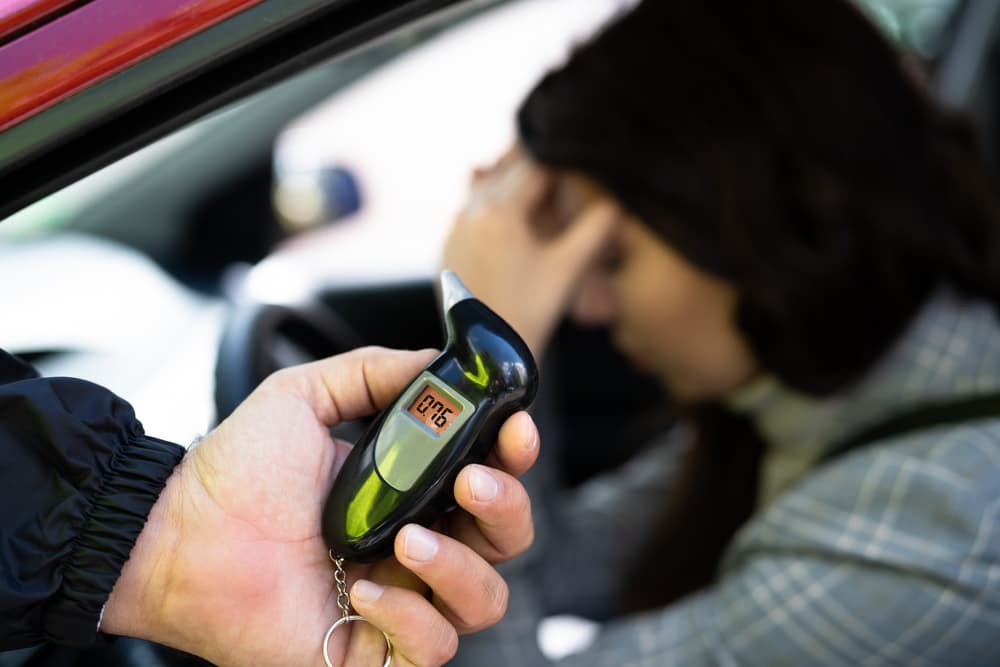
If you refuse the Breathalyzer test, you’ll be charged for refusing the test. Even if you don’t clearly agree to the test, it can be seen as a refusal. An ambiguous response, conditional response, or silence is considered the same as a direct refusal.
Silence
To agree to a Breathalyzer test, the accused must show a willingness to take the test. While you have the right to remain silent, this right does not apply to consenting to a Breathalyzer test. In this case, your silence is construed as a refusal.
Insufficient Samples
Sometimes, after consenting to a Breathalyzer, a person intentionally minimizes the air they blow into the machine or cannot provide enough air to register a valid reading. This result can also be considered a refusal.
Outright Refusal
When you give the officer a flat “no,” a summons for the refusal is automatically filed, and your license is suspended. In the interim, you can also lose the right to have a conditional license.
Delaying the Test
This type of refusal happens when a person attempts to delay the testing. Any efforts to stall the test may be interpreted as a refusal.
Conditional Consent
You should say “no” or “yes” when asked to perform a Breathalyzer test. Saying anything other than an affirmative and unconditional response is considered a refusal.
If you refuse to submit to the test, you may still be charged with driving while intoxicated or under the influence. Police do not need the test to convict you of the crime. If they have probable cause, it’s enough to make an arrest.
The Penalties for Refusing
Refusing a Breathalyzer test is considered a separate traffic violation, which triggers an instant license suspension. For a first offense, you may have your license suspended for as long as a year and pay a penalty of up to $500. Repeat offenders face larger fines and longer suspensions. Regardless of the form a refusal takes, it can get pretty expensive.
Your Miranda Rights versus Your Right to a Refusal
Your right to refuse a Breathalyzer test is your right alone. Don’t confuse this right with your Miranda Rights – such as the right to remain silent or have a lawyer present.
Once the Breathalyzer test is confirmed, a police officer may read you your Miranda Rights. Then, immediately contact a DWI attorney about your DWI arrest and do not answer police questions.
Field Sobriety Testing
Besides chemical tests, the police may administer field sobriety tests (FSTs). Tests include the walk and turn, the horizontal gaze nystagmus (HGN), and the one-leg stand.
These tests are often given roadside. Unlike the chemical tests, you won’t get into trouble if you refuse these tests. If you haven’t been drinking or are not impaired, you might go on your way without an arrest.
If you fail a field sobriety test, an officer has enough proof for probable cause to make an arrest. They will also have the evidence needed for a prosecutor to present a case at trial.
Even if you refuse FSTs, you’ll usually be arrested for DWI, and your refusal, while lawful, will still be admissible at trial. While a refusal creates a negative inference, it still is a much weaker form of evidence than if the police have video proof of your failing an FST. So, if you’re intoxicated, you may be better off if you don’t submit to an FST and take the Breathalyzer once you get to the station.
What a Criminal Defense Lawyer Will Examine If You’ve Refused Testing
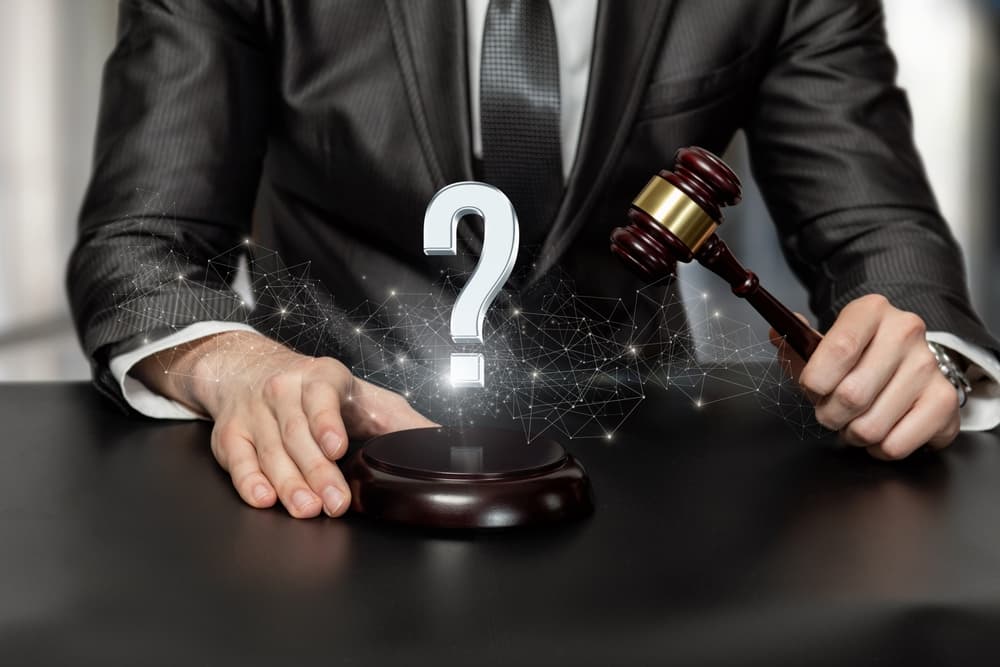
A criminal defense lawyer who handles DWI cases will assess the circumstances of a Breathalyzer refusal by asking specific questions. These questions review the level of intoxication, the legal procedures for testing, and the defendant’s understanding of taking or refusing the test.
Questions a Lawyer May Ask
For example, a lawyer may ask the following questions:
- Did the police have enough of a reason to believe the accused should be tested for intoxication?
- Did the police officer inform the driver of their rights regarding the test?
- Did the defendant refuse the Breathalyzer, or was there a language barrier?
- Did the defendant understand what the police officer was requesting?
When a DWI attorney handles these cases regularly, they have the knowledge and experience to identify issues with your charges – issues that may reveal a charge for a Breathalyzer refusal was improper and, therefore, should be dismissed.
Your Rights for Submitting to a Breathalyzer Test
When you take a breath test, the police should inform you of your rights and the penalties for refusing the test.
The arresting officer must advise you of what will occur if you don’t follow the law for implied consent for chemical testing. They will advise you that you don’t need a lawyer present when you take the assessment.
They may also indicate that you’ll be issued a summons or that you’ll be separately charged for the refusal. Any revocation or suspension for the refusal is separate from the DWI charge. When they ask if you’ll submit samples of your breath, you should directly answer “yes” or “no.” You should clearly state your answer so that it’s straightforward and not confusing or ambiguous.
The Two Types of Breathalyzer Tests
Breathalyzers are preliminary alcohol screening (PAS) tests or evidential breath tests (EBTs). The police use small portable handheld devices for PAS testing in the field. Because of their size and portability, they’re not always accurate.
If the police stop you for suspicion of DWI, pull you over for a traffic violation, or you get involved in an accident, they may ask you to take a preliminary breath test or PAS assessment. This test is also called a portable breath test (PBT) and is performed, as mentioned, with a handheld device.
While you’ll probably be arrested for DWI, a PBT is not usually admissible at trial. Again, portable Breathalyzers are not always reliable, so they’re not deemed admissible in court.
The EBTs are the larger, stationary machines featured in police stations. A police officer may use the PAS device before they make an arrest and then use an EBT to validate the test results.
BAC Levels
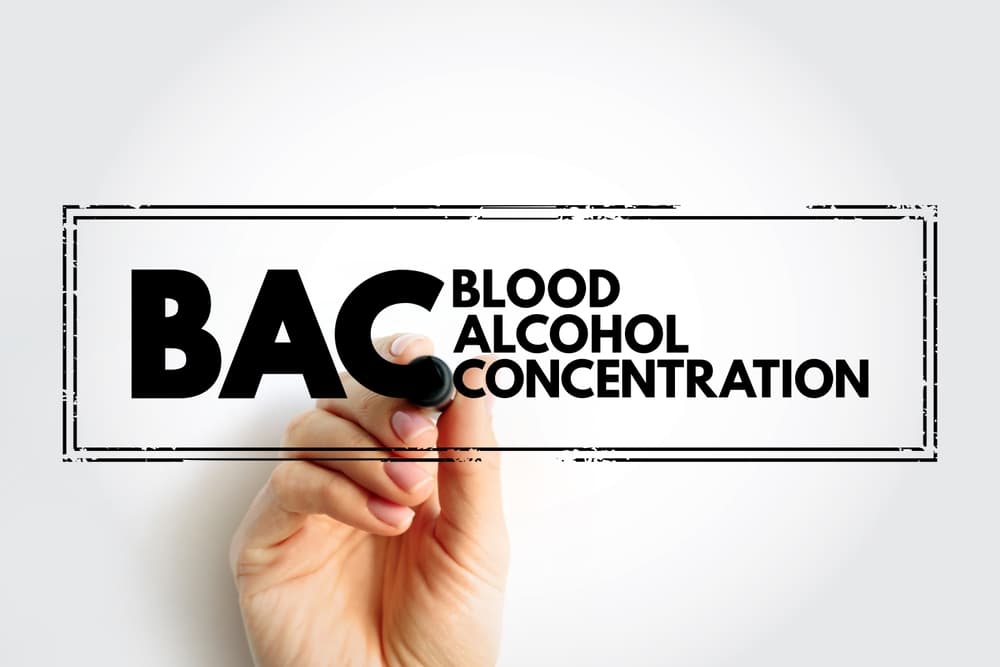
While the BAC level in most states is .08 percent, it helps to know how BAC levels can impact a person’s abilities and perceptions. Below are BAC levels and how they relate to the physical and cognitive effects of drinking alcohol.
- 0.01 to 0.05 – The person feels a slight buzz, less inhibited and alert.
- 0.06 to 0.10 – Emotional, sleepy, numb, and a reduced memory. The coordination is also affected.
- 0.11 to 0.20 – Shifts in mood, mania, and improper behavior.
- 0.21 to 0.30 – Depression, aggressiveness, blurred vision, and poor reasoning.
- 0.31 to 0.40 – Unconsciousness or coma.
- 0.41+ – Possible death.
Techniques Used to Measure BAC
A Breathalyzer may use different methods to measure a person’s BAC. Breathalyzers are made with semiconductors, infrared optical sensors, and electrochemical fuel cells to measure BAC results. Researchers are also developing Breathalyzer devices that are compatible with smart devices.
For instance, when an infrared cell is used, the cell directs infrared energy through the breath sample with the unabsorbed energy used to detect the BAC. The higher the concentration of the ethanol, the more infrared absorption occurs. This can be likened to a sunglass lens absorbing visible light.
The accuracy of the breath sample depends on the volume of deep lung (alveolar) air. As a driver breathes out, the device monitors the expired air using an infrared cell. The concentration of the ethanol escalates as the sample breath is analyzed, ensuring a precise alcohol reading. The volume of air a person blows depends on the size of their lungs.
If alcohol is in the mouth, the ethanol concentration quickly peaks when an evidential test is given. If an infrared cell monitors the breath profile and detects this peak, the test is aborted, and a blood test is ordered instead. Sometimes, devices register an interfering substance, which aborts the breath test and requires blood testing.
How a DWI Lawyer Can Help You If You’ve Refused a Breathalyzer Test or Arrested for DWI
If you refused a Breathalyzer test and were convicted of DWI, you must speak to a DWI attorney about your case. They can benefit you in the following ways.
Challenging a Breathalyzer Refusal
A DWI attorney can challenge the legality of the refusal, arguing that you may not have been properly advised of the consequences or that the police lacked probable cause to request the test.
Suppression of Evidence
A DWI attorney can file motions to suppress evidence not obtained legally, such as arrests without probable cause, violations of your constitutional rights during an arrest, or an improper traffic stop.
Plea Bargaining or Negotiation
If the evidence against you is strong, a DWI attorney can, in some instances, reduce the charges through plea bargaining.
However, some states, such as New Jersey, will not allow plea bargaining for a first Breathalyzer refusal or DWI. In these cases, a lawyer may find another way to minimize the consequences of the arrest. For example, they may offer mitigating circumstances or alternative options for sentencing.
For DWI offenders who spend time in jail, the sentence, on average, is 11 months – almost a year. That’s why you must speak to a DWI lawyer. They can help you stay out of jail and pay restitution with fewer penalties.
Challenging the Test Results for the Chemical Test
Your attorney may challenge the accuracy and reliability of the Breathalyzer test results if you agree to the testing. They may challenge the processes used to collect and analyze the samples or argue that the equipment was improperly calibrated or configured.
Appealing the Conviction
If you’ve already been convicted of a DWI, an attorney can file an appeal, proving that certain procedural violations or a legal error occurred during the trial. Doing so may lead to a new trial or a reversal of the DWI conviction.
Contact a DWI Lawyer Today
Refusing a Breathalyzer test carries major consequences, including the suspension of your driver’s license and potential fines and jail time. Even for a first offense, you may be facing these penalties. By relying on the skills of a New Jersey criminal defense lawyer , you can work to minimize the penalties and protect your rights throughout the legal process.

Revoked Licenses for Repeat Alcohol and Drug Related Offenses in New York and New Jersey
Driving under the influence of drugs or alcohol can lead to fatalities. Therefore, if you receive a DWI charge, you may sober up pretty fast when you make this realization. If you receive multiple DWI convictions, the court may determine that you’re not fit to drive.
Needless to say, if you’re facing another DWI or DUI charge, you need to talk to a DWI/DUI defense lawyer. An attorney can recommend the best course of action if you have been arrested again for driving while under the influence. Sometimes, they can help you beat the charge if there was a procedural error during the arrest.
Given that about 300 people are killed in New York City in alcohol-related car accidents each year, the law does not take repeated alcohol or drug-related offenses lightly. Moreover, out of that number, about one-third of the incidents involve a driver who has had three prior DWI arrests and convictions.
Schedule a Free Initial Consultation Today!
How a Revoked License Can Affect You
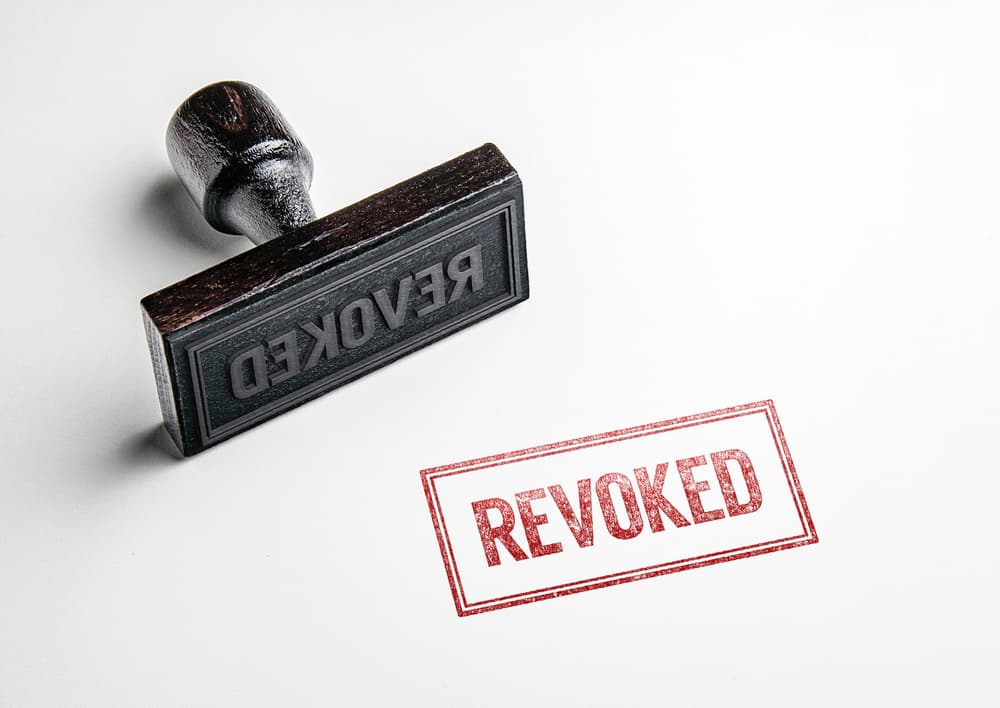
Wherever you live or work, a revoked license can make life difficult. For instance, if you receive a DMV notice in New York that your license or driving privileges have been revoked, your driver’s license is canceled. Therefore, you can’t drive until the revocation period ends.
While you can get a conditional license to drive in New York after a DWI arrest, you don’t have this advantage, for example, in New Jersey. You can’t operate a vehicle until your suspension or revocation period ends.
A revoked license can impact your ability to do daily tasks, such as grocery shopping, getting to and from work, or how you relate to others. If you can’t drive, you can face difficulties in other areas of your life.
Some people experience depression or an extra stain on their personal relationships. That’s why you should always seek legal guidance when you are facing an alcohol or drug-related driving offense and conviction.
The Difference Between a Revocation and Suspension
Technically, a license suspension temporarily removes driving privileges, while a revocation is considered more permanent. In either case, you must petition the court to regain your driving privileges. It’s just more difficult after a revocation. Naturally, the steps you need to take depend on your jurisdiction. So, it’s best to talk to a DWI attorney to determine how to proceed.
How Long Will You Have to Wait to Drive Again?
Your revocation period may span six months to a year, with penalties ranging from $500 to $10,000. You may also have to spend from one to seven years in jail. It just depends on how many times you’ve been arrested and convicted for driving in an inebriated state. Your frequency of arrest and convictions are also considered.
For example, a DWI or DWAI-drug (driving while ability impaired) violation in New York is an E felony that applies to a second conviction that happens within a 10-year period. A third DWI/DWAI-drug violation within ten years is a D felony.
Getting Your License Revoked for Life
You may lose your driving privileges forever if you have too many violations within 10 years. Therefore, a DWI attorney can offer helpful advice and guidance if you face this situation.
Besides DUI/DWI offenses, reckless driving or aggravating factors can lead to a lifetime revocation of a person’s driving privileges.
Examples of Reckless Driving
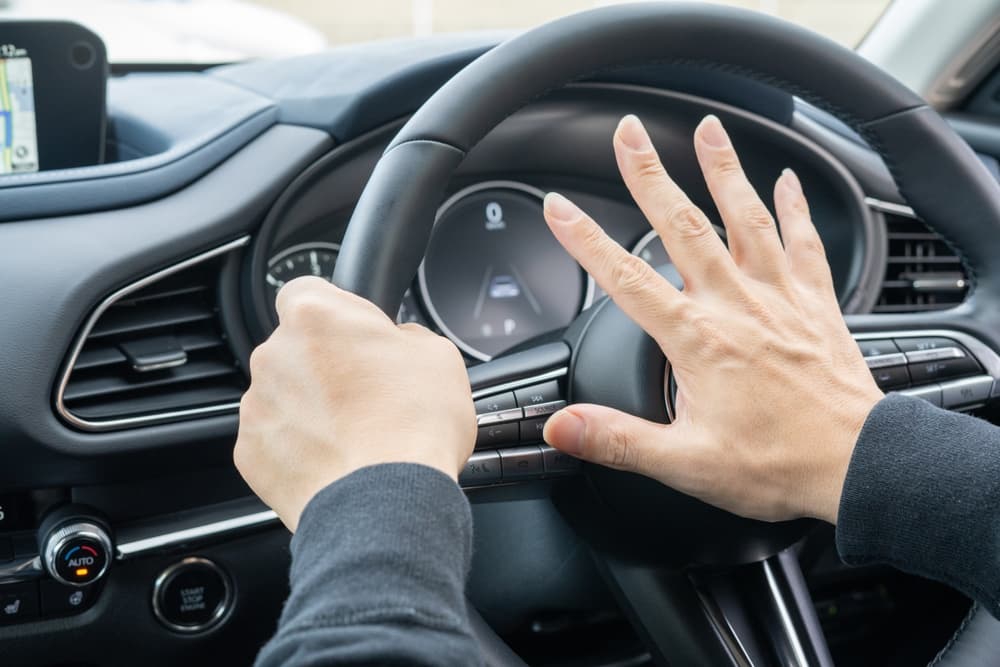
Driving dangerously or recklessly is the fastest way to receive a lifetime suspension. In addition to violations that involve DUI or DWI, other offenses, such as vehicular assault, reckless driving, involuntary manslaughter, and aggravated vehicular homicide, can banish your right to drive.
Aggravating Factors in Driving Crimes
If you’re convicted of a driving crime with an aggravating factor, it elevates the degree of the charged crime, which may also lead to a permanent driver’s license revocation. Aggravating factors may include the following:
- Driving while discharging a firearm or using a weapon
- Driving while under the influence of a controlled substance, illegal drug, and/or alcohol
- Driving with an invalid license, if your license is revoked, suspended, or forged
- Driving recklessly with a criminal history that already contains the same or similar driving crimes
- Speeding or driving to escape law enforcement
Habitual DUI/DWI Convictions – Repeat Offenders
In the cases of habitual offenses for DUI or DWI, repeat offenders increase their odds of completely losing their right to drive. For example, if you’re convicted of DWI/DUI three or four times, you’re more likely to forfeit your privilege to drive.
Examples of Crack-Downs for Alcohol and Drug-Related Arrests and Convictions
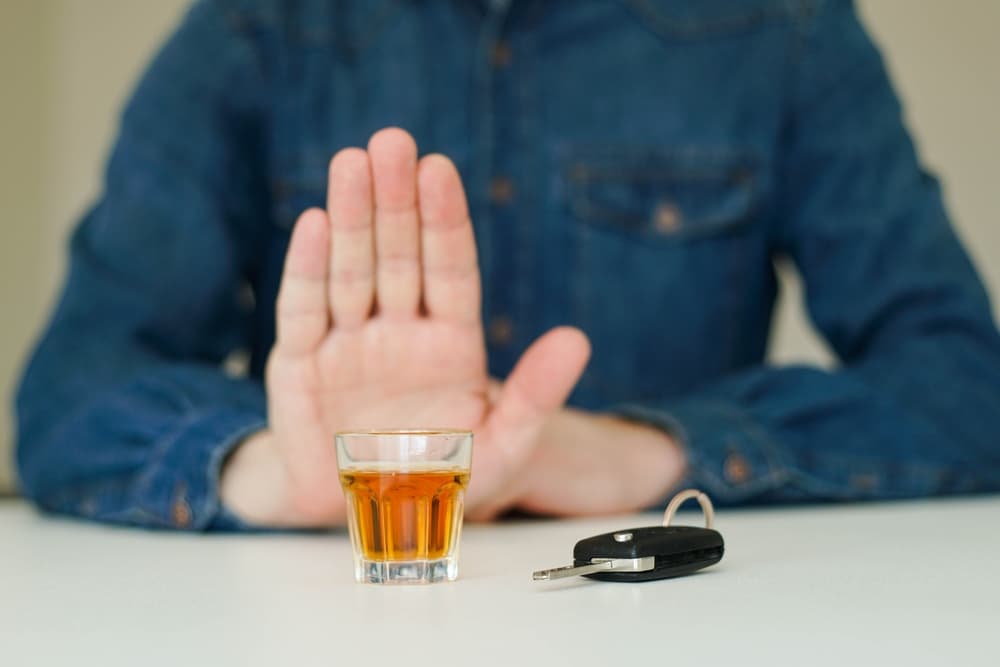
Suspending or revoking a driver’s license is a mandatory penalty in many U.S. states for driving under the influence. While all states have tough punishments for drivers who drive after drinking or taking drugs, some states have cracked down on the problem.
For instance, both New York and New Jersey have some of the toughest traffic and drunk driving laws in the U.S.
New Jersey Laws for Driver’s License Suspension for DUID and Other Drug Charges
In New Jersey, for example, you can get your license suspended if you get convicted of driving under the influence of drugs, which is a DUID, or if you’re found in possession or under the influence of a controlled dangerous substance (CDS) while driving.
This can also apply if you were not driving at the time. If you receive a third conviction for DUID or driving while under the influence of alcohol, you can receive a license suspension for up to 10 years.
Denials for Reinstatements in New York
In New York, the DMV has reviewed thousands of applications for driver’s license reinstatements for drivers with multiple alcohol and drug-related driving offenses.
According to reports, about 1,500 applications were denied re-licensing if they had five or more alcohol—or drug-related convictions. Some applicants, who had three or four convictions for driving while under the influence within a period of 25 years, were also denied if they had a serious driving violation. These violations included reckless driving or a fatal crash.
Learn More About Your Rights Today: Contact a DWI Lawyer
If you’re charged with a drug or alcohol-related offense, you can face more than just a bad driving record. The law is cracking down on multiple offenses. That’s why you must consult a criminal defense attorney in New York & New Jersey to understand your rights and what you can do about a license revocation. Only with an attorney’s help will you realize a more positive outcome.
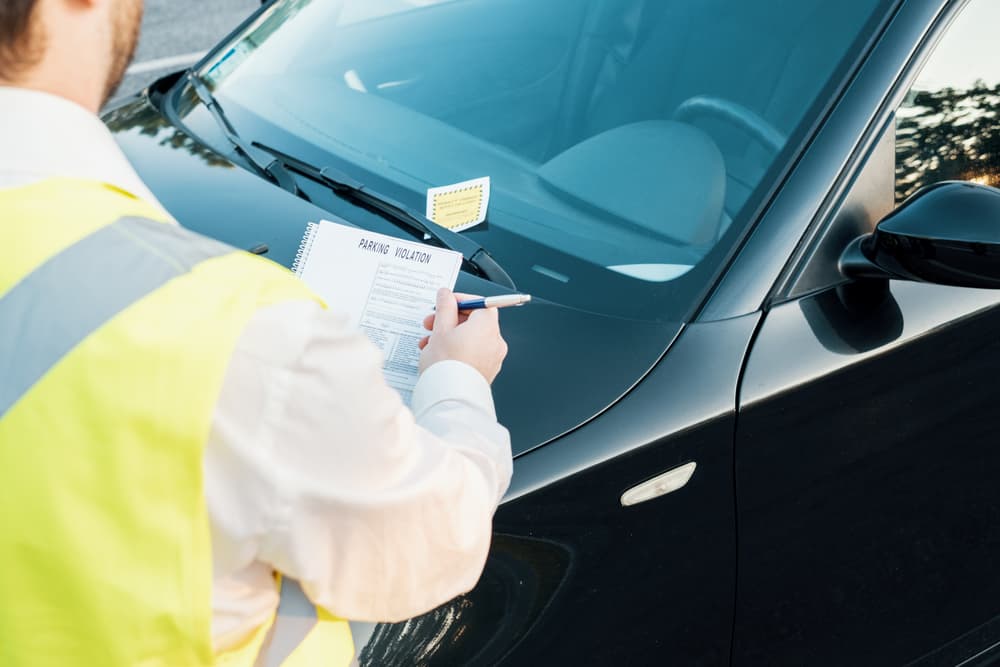
New York Traffic Ticket Appeals
You may think you were wrongly accused and convicted of a traffic ticket violation unfairly. If this is the case, contact a traffic ticket attorney in New York immediately. They can direct you in completing all necessary forms and filing the paperwork. They can also review your documents to ensure everything gets completed properly.
While you can conveniently appeal a Traffic Violations Bureau (TVB) conviction by mail or online, consult a traffic lawyer for a speedier process and a better chance of a favorable outcome to your case.
Schedule a Free Initial Consultation Today!
Rules and Guidelines for Appealing a Traffic Ticket Conviction
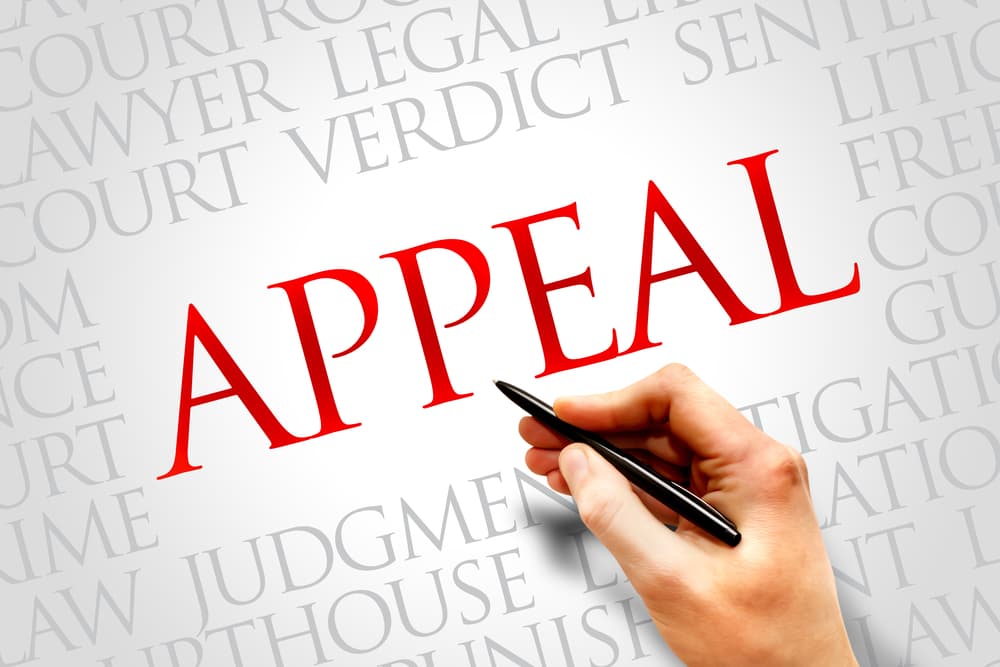
You have to file an appeal 30 days from the conviction date. You’ll need to pay a $10 non-refundable fee as well. Just because you submit an appeal online or by mail does not mean acceptance of the legal request.
The DMV Appeals Board still has to decide if the appeal meets certain legal requirements.
The words Traffic Violations Bureau must appear at the bottom of your traffic ticket. You can’t file an appeal with the DMV if you don’t see the words on the ticket.
If the words do appear, you’ll receive a three-digit code that you can use later to review the status of the online request. You can appeal one conviction at a time online.
Gathering the Required Information
To appeal online, you’ll need:
- The DMV ID number from your New York driver’s license, learner’s permit, or non-driver’s photo ID card
- Your name, birth date, and gender, as shown on the traffic ticket
- Your mailing address (If the address is different from your DMV address, the system will not instantly update the address you have on file with the DMV)
- An appeal argument explaining the reasons for appealing the ticket
- Your attorney’s name and mailing address or the traffic ticket lawyer representing you in your case
- If you’re requesting a stay of a driver’s license suspension or revocation resulting from the conviction, you’ll need to submit a Stay Argument in writing
Important Rules to Remember When Submitting an Appeal Online
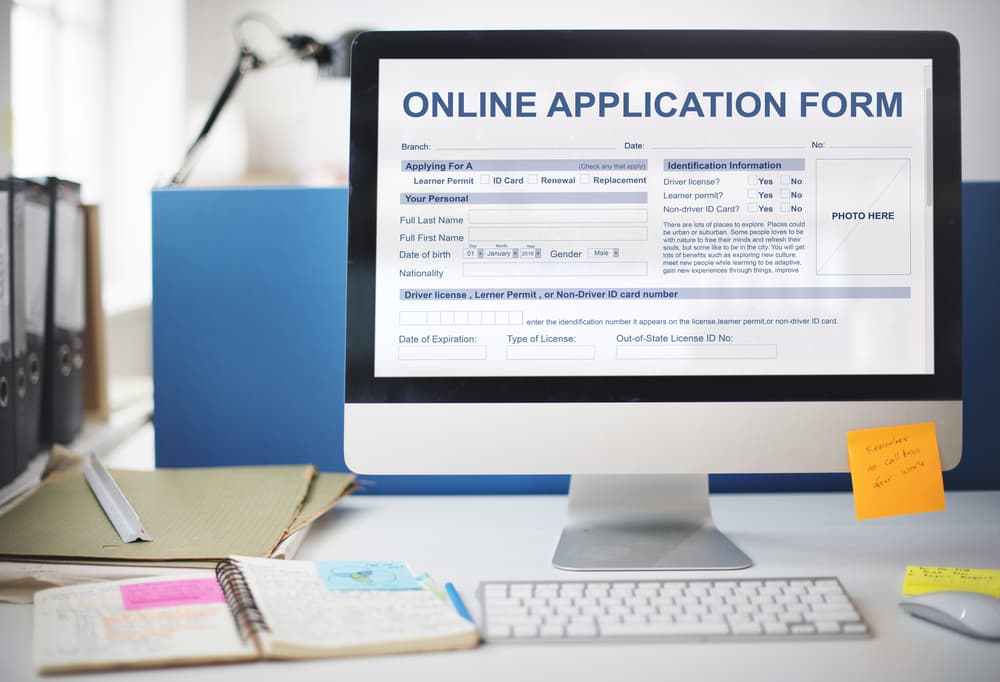
Exhibits and Arguments That You Can’t File Online
If you cannot submit exhibits or arguments online, or they won’t fit into the provided space, you can mail them to the DMV.
Any evidence, documents, or exhibits not considered by a hearing officer can’t be filed with the appeal. A traffic ticket attorney can organize and properly submit the correct exhibits and arguments.
You Cannot Cancel an Online Appeal
After you confirm your information or submit the details for the appeal, you can’t go back and cancel the appeal.
You Cannot Edit an Online Appeal
When submitting an appeal online, you can’t edit the appeal argument or additional appeal arguments after filing them online.
You Might Include Additional Appeal Arguments
If you request a transcript for review for your online appeal, you may submit an extra appeal argument within 30 days of receiving the ordered transcript.
To enter an additional argument, you’ll need to insert the traffic ticket number and your DMV ID number from your driver’s license, learner’s permit, or non-driver photo ID. You may also submit your name, date of birth, or three-digit code to submit the additional argument.
Submitting an Appeal for a Traffic Ticket by Mail
If you choose to appeal by mail, you must mail a Traffic Violations Bureau Appeal form and the $10 appeal fee to the board for appeals in Albany.
Winning an Appeal for a Traffic Ticket Violation
It’s important to consult with a traffic ticket lawyer if you feel you were wrongly convicted of a traffic violation and received a ticket in error. An attorney can review the circumstances of the case and advise you on the success of submitting an appeal.
Remember, you won’t win an appeal unless you can argue successfully that an officer’s version of the events is incorrect or the judge made a legal error. Therefore, talk to an attorney before you appeal a traffic ticket or similar offense.
Breaking the Speed Limit – How It Affects Your Driving Record
Below are the points New York issues for violating speed limits:
- Up to 10 miles over the posted speed limit – three points
- 11 to 20 miles over the speed limit – four points
- 21 to 30 miles over the speed limit – six points
- 31 to 40 miles over the speed limit – eight points
If you drive 40 miles over the speed limit, you’ll be assessed 11 points.
Points for Other Moving Violations
Improper passing adds three points to your license. You’ll also receive three points for disobeying a stop, yield, or traffic control sign.
Driving over a railroad crossing when you were supposed to stop adds five points to your license. You’ll also accumulate five points if you’re caught texting while driving.
Improperly turning or not using a turn signal when turning adds two points to your driver’s license.
How Long a Violation and Points Stay on Your Record and License
A traffic violation stays on a New York driving record three years after a conviction. The points you accumulate count for 18 months from the date of the offense. You can face a suspension if you collect 11 points within 18 months.
Parking Tickets and Points
If you get a parking ticket, it will not result in points. This non-moving violation does not end up on your driving record since the law does not consider it a safety violation.
Situations When an Appeal is Advisable
Not every traffic violation is straightforward. You can argue your case if you want to reduce the fine or dispute the ticket. Again, consulting with a traffic attorney can get the advice you need to see if it’s worth moving forward.
You might go ahead with an appeal in the following instances:
It’s Your First Ticket
If you receive a first traffic ticket, you may worry about keeping your driving record clean. After all, a driver with a ticket-free record pays lower auto insurance rates. Drivers without tickets may also qualify for discounts for safe driving.
You Don’t Want to Add More Points
If your point total is dangerously close to a suspension, you might appeal a ticket if you believe the ticket was unfair. In this case, you have nothing to lose and everything to gain. A traffic ticket attorney can direct you on the best course of action to take.
The Law Enforcement Officer Pulled Over Your Car By Mistake
A traffic enforcement officer may have pulled you over when a driver in a similar-looking vehicle actually violated the law. A dashcam or another video of an obstruction at the scene may demonstrate the error.
You Broke a Traffic Law to Prevent an Auto Accident
Maybe you’re given a ticket for not using your signal when changing lanes. In this case, the omission may have occurred to avoid an accident. This may hold true as well if you go over the speed limit to avoid a dangerous or out-of-control car.
You also might fight a ticket if you had to pull over quickly, without a signal, due to a mechanical issue. A mechanical issue might also cause you to drive on the shoulder of the road or slow down to a crawl.
You Receive a Ticket for Speeding Even When You’re Driving Safely
You may fight a ticket if you were slightly over the speed limit, provided the conditions were safe and you were trying to keep pace with the traffic flow.
A Radar Gun Was Responsible for Your Ticket
Sometimes, an incorrectly calibrated radar gun can result in a faulty reading.
You Notice Mistakes on Your Parking Ticket
A ticket might show the wrong road or highway or refer to the wrong moving violation.
When It’s Better to Pay the Ticket and Avoid an Appeal
It’s better to just pay the ticket if:
- The ticket concerns a non-moving violation and won’t add points to your license
- A traffic camera at a red light captured you speeding
- Your defense is – you didn’t know the law
Also, if you drive safely and do not expect to receive a ticket in the future, it may be better to move forward by paying the fine.
Reducing Points and the Costs of Insurance through PRIP in New York
There might be other ways to reduce your points without appealing a conviction. For example, you can drop up to four points off your license if you sign up for a point and reduction (PRIP) program in New York.
As the name suggests, this program can also lower what you pay in insurance. Again, a traffic ticket attorney is an important ally if you believe you should fight a ticket conviction.
You and your lawyer might think about fighting a speeding ticket, for instance, if you receive a ticket that increases your insurance. This is especially true if you feel you weren’t exceeding the speed limit and/or haven’t received prior convictions.
Why It’s Best to Work With a Traffic Ticket Lawyer
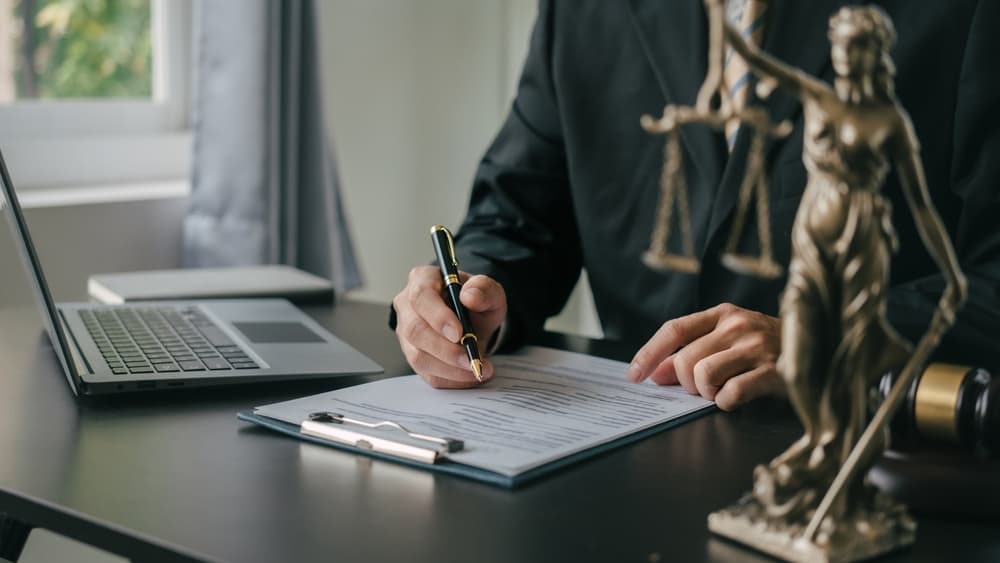
While you can file documents and forms online for a traffic ticket appeal, a lawyer will add valuable assistance. Ensure the attorney you recruit practices this type of law in New York. Read their reviews and find out more about their educational and professional background.
Below are some major advantages you’ll experience when working with a lawyer.
A Full Assessment of Your Case
Your attorney will review all the ticket details, the incident’s circumstances, and consider the evidence. They can use this information to advise you on the likelihood that you’ll win and whether it’s worth your effort.
Better Communications
Traffic laws and procedures can be confusing. Because a traffic ticket attorney is well-versed in specific regulations and rules, they can direct you through the appeals process, ensuring you follow the required steps and meet the deadlines.
A Reduction or Dismissal of the Charges
A traffic attorney may reduce your charges and present a strong defense on your behalf. For example, they might cross-examine the officer who issued the citation and challenge the evidence. This may lead to a reduction or, better yet, a dismissal of the charges.
Added Protection
Because a ticket conviction can add points to your driving record or increase your insurance rates, the services of an attorney can help minimize these possible consequences, thereby protecting your driving record.
Better Organization and Management
Because you have a variety of documents and motions to file, an attorney can relieve the burden. They can handle administrative tasks accurately, ensuring every aspect of the appeals process goes as planned.
While you may pay more to hire a traffic ticket attorney, their knowledge can significantly improve the results of the appeals process.
How Much Money Can You Save By Winning an Appeal?
What you save by winning an appeal can vary, depending on the location and specific moving violation. Fees for moving violations in New York may range from around $140 to $700 for reckless driving. Even exceeding the speed limit by two miles per hour can lead to a fine of over $100.
It’s important to note, as well, that you’ll enjoy potential savings by avoiding added points to your driving record, which increases insurance rates and may even lead to a license suspension. You may need to pay additional fees or surcharges.
An experienced traffic ticket lawyer can calculate the savings and give you a more precise estimate based on the details and the local laws.
If a successful appeal can save you almost 20 percent of what you pay for insurance, hire an attorney to appeal.
Contact a New York Traffic Ticket Attorney Now
The best way to understand your rights in a traffic ticket appeal is to discuss your situation with a traffic lawyer. They have an intricate knowledge of traffic laws and the appeals process and can also seek a more positive outcome. Consult a criminal defense lawyer right away.

How to Use Dashcam Footage to Fight a New York Speeding Ticket Violation
You can use your dashboard’s camera to your advantage, whether traveling on a long journey or driving a daily commute.
You can use the camera to show who is at fault in an accident or record footage to fight a speeding ticket in New York.
If you receive an unfair speeding ticket, contact a speeding ticket attorney.
Schedule a Free Initial Consultation Today!
Dashcam Features
A dashcam is popular among commercial drivers, transport companies, fleet owners, and motorists, as the device provides both versatility and security.
You can use a dashcam to fight the charge if you receive a speeding ticket. Most dashcams have GPS capabilities that record your location and speed.
Some camera models feature speed alerts that warn you when you exceed the posted speed limit while traveling.
High Resolution
When you’re fighting a speeding ticket in New York, you want to make sure the resolution of the dashcam’s footage is good.
A high-definition (HD) camera with good resolution can show the posted speed, which may further support your claim that you did not break the speed limit.
Otherwise, you may not use the evidence in court. It helps if your camera features night vision capabilities that capture the road in low-light conditions.
Impact Sensors
Some cameras have impact sensors, which detect G-forces or vibrations during an accident. This feature can determine the severity of an incident and provide important details for insurance purposes.
Wi-Fi Connectivity
Wi-Fi connectivity allows you to view dashcam footage with your tablet or smartphone—a helpful feature when you’re not in your vehicle or need to present evidence in court.
You can fight a speeding ticket with the information from your dashcam device. Because New York strictly enforces traffic laws, having a dashcam recording of your speed can save you from paying a fine or keep you from accumulating points on your driving record.
The Points System
A speeding ticket may cause you to add three to 11 points to your driving record, depending on how fast you were going over the speed limit when you were caught speeding. Receiving 11 points within 18 months can lead to a suspension of your license or driving privileges.
With a dashcam to record your speed, you may use your device to spar with the cameras and radar used by police and New York jurisdictions.
Understanding the Laws for Speeding in New York
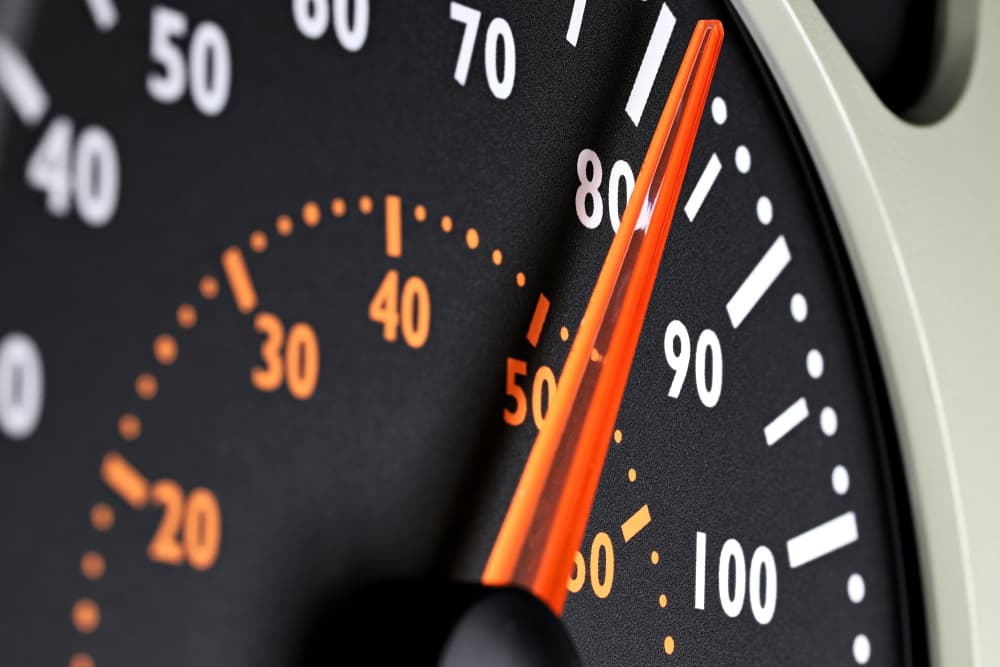
New York operates under a system that, again, supports strict speed regulations, using automated speed cameras and law enforcement support.
Speed Limits in New York
The speed limit throughout New York is lower than in other states. The maximum speed limit is 55 miles per hour unless signs indicate another speed. On the state’s interstate highways, such as I-495 and I-787, the speed limit drops to 40 miles per hour.
New York follows a “reasonable and prudent” limit law. This legislation requires you to adapt your speed to avoid accidents, depending on road conditions and the weather.
A conviction or guilty plea carries a maximum fine of $150 plus a required surcharge of $93, or $88 in New York City. So, you can save a great deal of money if you can prove you weren’t speeding with a dashcam in place.
You might even save your job. Some commercial truck drivers can lose their jobs if caught speeding and do not have the evidence to defend themselves.
The following list gives the speed limits established for different areas:
- Within the city limits – 25 to 45 miles per hour
- Highways outside of cities – 55 miles per hour
- Interstates – 55 to 65 miles per hour
How a Dashcam Can Help You Fight a Speeding Ticket
A dashcam’s primary advantage is its unbiased account of events.
If properly configured and maintained, it can capture a wide array of relevant data:
- Actual Speed: Some dashcams have GPS technology that records your speed at any given time. You can use this data to show you did not exceed the speed limit.
- Road Conditions: The video can demonstrate that you were driving at a reasonable speed, for example, in a construction zone.
- Traffic Flow: Footage may depict the flow of traffic, which can sometimes indicate that maintaining a speed slightly above the limit was necessary to keep pace with other autos.
- Speed Limit Signs: Sometimes, a debate will arise over poorly placed or obscured speed limit signs. A dashcam may capture these signs to corroborate your claim.
- Calibration and Placement of Speed Cameras: Your dashcam may provide evidence that disputes the placement or accuracy of a camera or radar gun.
Steps to Beat a Speeding Ticket with a Dashcam in New York
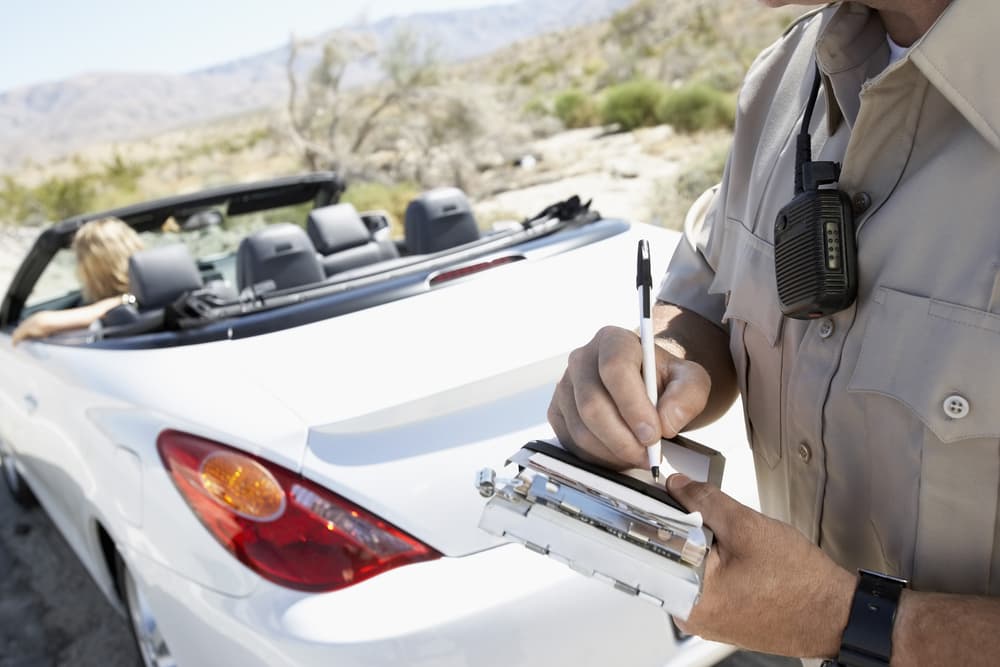
The following steps will help you and your attorney prove your case when fighting a speeding ticket using a dashcam.
- Preserve the Footage: Immediately save the recording from the time of the incident. Most dashcams overwrite old footage, so securing this evidence promptly is essential.
- Assess the Quality of the Evidence: Review the footage closely. Recording a high-quality, clear video that illustrates your claims is paramount.
- Understand the Evidence: When you retain a traffic ticket attorney, they can collect the proper evidence from your dashcam and gain the backing you need for a solid defense.
- Secure Legal Representation: Again, an experienced traffic ticket lawyer can provide valuable insights into the viability of your dashcam defense.
- Prepare Your Testimony and Evidence: Your defense lawyer will organize the footage and other supporting evidence. They will explain clearly and concisely how it complements your case. When you work with a traffic ticket attorney, you can ensure a more successful defense.
- Obtain Dashcam Specifications: Technical information about the accuracy of the dashcam’s speed recording feature can help you.
- File a Discovery Motion: Laws vary by locality, but your attorney might file a motion to discover all the evidence the prosecution has, including calibration records of radar guns or the history of speed cameras used in your case.
- Prepare for the Court Appearance: Dress professionally and arrive on time. Knowing court procedures and having a lawyer present can greatly aid in presenting your case effectively.
- Challenge the Officer’s Conclusion or Calibration of the Equipment: Your lawyer can use your dashcam to refute the speeding claim or question the speed detection device’s calibration and accuracy.
- Highlight Any Contradictory Evidence: If the dashcam shows a different speed, traffic flow, or obscured signage, your attorney will ensure the judge understands these discrepancies.
- Be Respectful and Concise: When necessary, address the judge respectfully. Your defense attorney should handle most communications with the judge.
Legal Considerations
You can admit dashcam footage as evidence, but it does not guarantee the dismissal of your ticket. The judge’s discretion plays a significant part in the outcome.
Consult a NY Traffic Defense Lawyer
A dashcam can be a potent tool when disputing a speeding ticket in New York state. However, its effectiveness hinges on the quality of the footage, the nature of the speed violation, and the interpretation of the law concerning the presented evidence. By relying on the skills of a New York criminal defense lawyer, you can make your case and do so successfully.
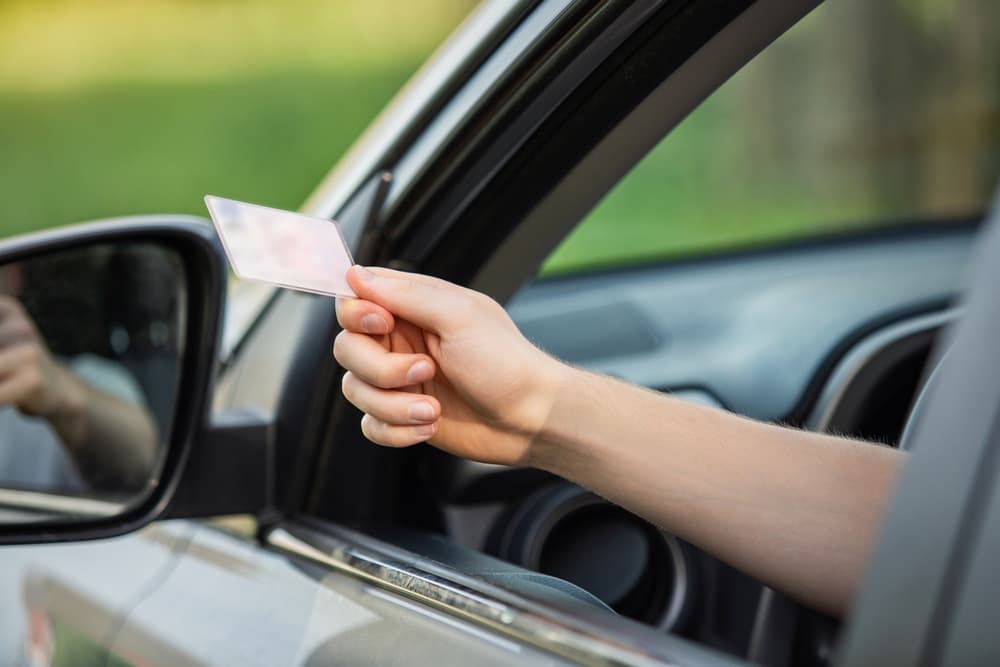
How to Reinstate a Suspended License in New York
Driving is not a right, but a privilege that you can forfeit if you don’t follow traffic laws.
If you’ve been convicted of a DWI or had your license suspended for another reason, you can ask a New York traffic defense lawyer or DWI attorney to help you reinstate your driving privileges.
Schedule a Free Initial Consultation Today!
How Points Can Lead to a Suspension
The New York State Department of Motor Vehicles (DMV) keeps meticulous records of driving violations. Each violation receives a certain number of points. For example, if you’re caught speeding, you receive three points for exceeding the speed limit by 10 miles per hour or 11 points for zooming 40 miles per hour over the posted speed. If you collect 11 points from a traffic conviction within 18 months, you can get your license suspended.
Grounds for a Suspension or License Revocation
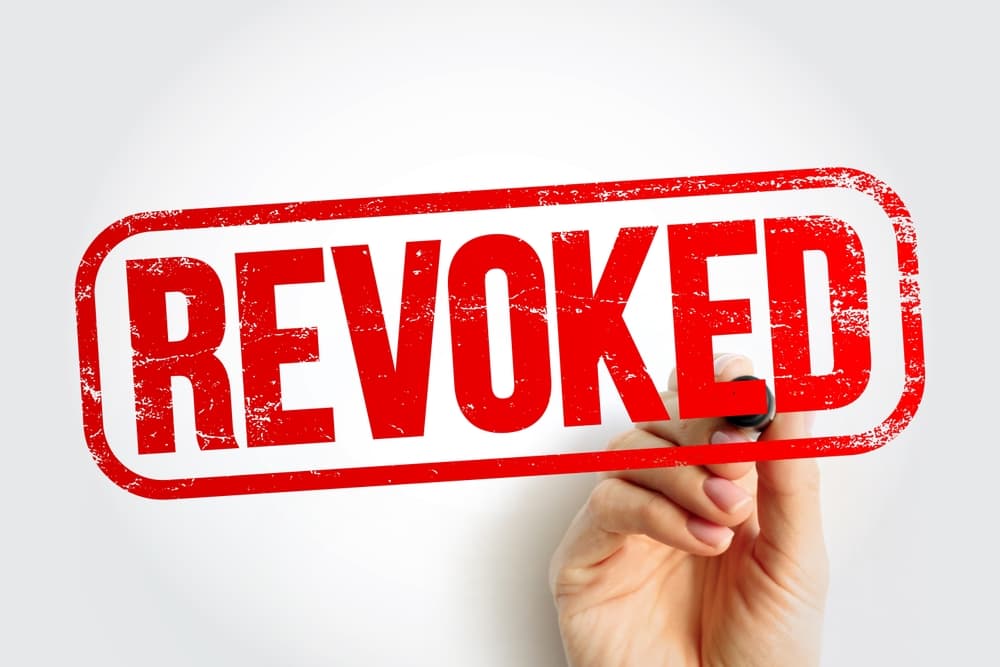
Various violations can lead to the suspension or even revocation of a license. For instance, a DWI (driving while under the influence) or DWAI (driving while ability impaired) can trigger a 90-day (for DWAI) to six-month suspension.
Other infractions that result in license suspensions include uninsured driving, reckless driving, hit-and-run, improper school bus passing, fleeing an enforcement officer, and having three speeding tickets within an 18-month period.
Securing a Conditional or Restricted License in New York
A restricted or conditional license can be a lifeline for those who might be eligible. It permits travel to and from the workplace or educational institutions, travel for childcare, travel for engaging with DMV proceedings, or travel for receiving medical care.
Those with suspensions due to drugs or alcohol can only apply for this restricted privilege upon enrollment in a state-sanctioned seven-week Impaired Driving Program (IDP).
You may be eligible for a conditional license or hardship license after a DWI/DWAI if you have not received these charges within the past five years, and you can show you do not have easy access to public transportation or can’t afford to take a taxi.
“Suspension Pending Prosecution”
Usually, you will lose your driving privileges once you’re charged with a DWI and the State shows a certified copy of a breathalyzer test over the legal limit of .08 percent. At this point, your license is designated as “suspension pending prosecution.”
“Pre-Conviction Conditional” License
If you had a driver’s license before a DWI offense, you may apply for a “pre-conviction conditional license” 30 days from your scheduled arraignment date. The conditional license allows you to use your car for daily responsibilities while the court resolves your DWI case.
“Post-Conviction Conditional” License
After you’re convicted, and if you haven’t had a prior DWI conviction on your record in the past five years, you’re allowed to apply for a “post-conviction conditional” license. Again, you can only get this license if you enroll in the DMV’s Impaired Driver Program, or IDP, a seven-week education program. You must complete the program to avoid revocation of the conditional license.
When You’re Not Eligible for a Conditional License
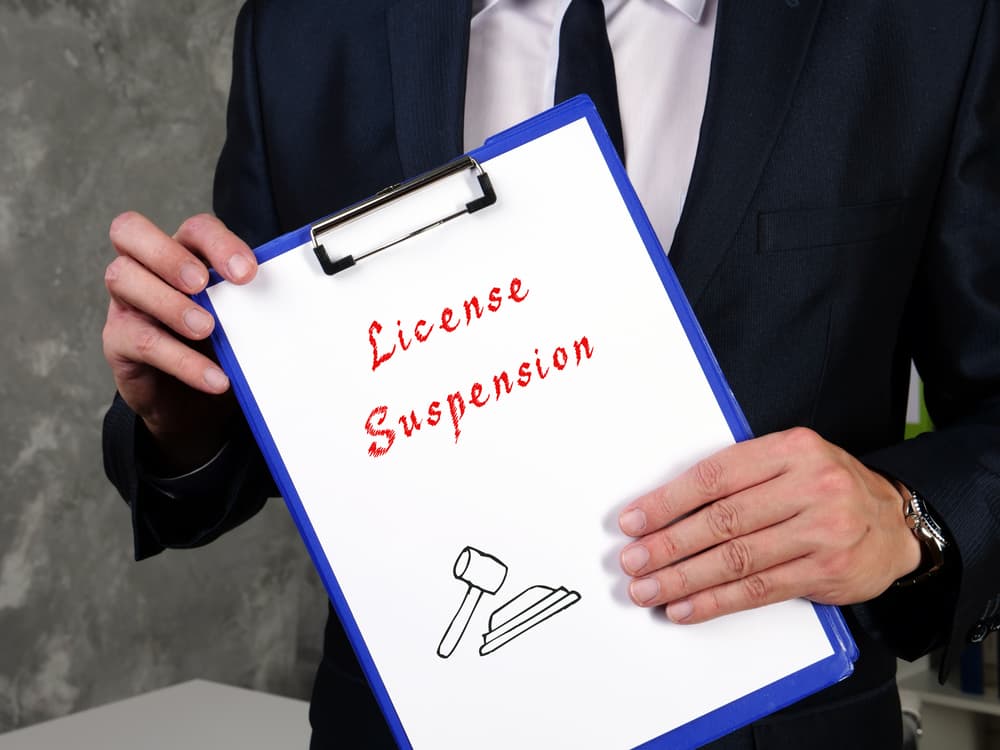
You cannot drive at all if your license is suspended after a DWI in the following instances:
- You’ve been convicted of assault, criminal negligence, or homicide when driving.
- Your eligibility for the IDP program involves a fatal accident conviction.
- You have had more than one unrelated driver’s license suspension or revocation within the last three years.
- You have a record of convictions or accidents or a mental or medical issue that makes you an immediate driving risk.
Consequences of Ignoring a Suspension
The importance of not driving with a suspended license cannot be overstated. It invites severe penalties, including incarceration, revocation, vehicle forfeiture, and fines reaching $5,000. Compliance is key – you must surrender your license to the DMV. Again, after a DWI/DWAI, your license is typically suspended for six months.
Working with a Traffic Lawyer or DWI Attorney
Hiring a traffic attorney or DWI lawyer can make it easier to reinstate your driving privileges after a license suspension. You must pay the required fees and fines and attend court-required programs and classes. Your lawyer can submit proof that you’ve met the court’s conditions while keeping you on track.
Reinstating Your Suspended License
Toward the end of your suspension term, look for a Notice of Restoration from the DMV. The notice outlines the steps you need to follow to settle your restoration fee online or at a DMV office.
After clearing the dues, wait three days to use the DMV website’s Photo ID Document Mailing Lookup feature. At that time, you can check on your reinstatement status. Any ambiguities should be addressed with the DMV.
What You Need to Do Step By Step to Get Your License Back
Below is a step-by-step guide for reinstating your driving privileges
- Again, pay all the required fees and fines related to the suspension. You can do this online or by phone with the DMV office close to you. As noted, the payment will appear on the DMV website, if approved, within three business days.
- Attend any applicable programs or classes you must complete upon suspension.
- Provide copies of payment receipts and class certificates to prove that you met all the conditions the court established.
- Complete any applicable requirements, such as alcohol education programs or installing an ignition interlock device (IID).
- Check with your DMV office to ensure all the required paperwork has been submitted and received.
- Submit a form for restoration of driving privileges with all the required documents attached and proof of financial responsibility in the form of a cash/bond deposit or liability insurance card.
When approved, you’ll receive notice within three business days that you can resume driving.
Maintaining a Pristine Driving History
Post-reinstatement vigilance is critical—another slip-up could cost you your license again. As a caveat, higher insurance premiums typically accompany a history of suspension. To better your record and curtail insurance costs, consider taking a defensive driving program, which can reduce insurance costs and improve your driving record.
Contact a New York Traffic Attorney or DWI Lawyer
The road to redemption after a license suspension requires diligence and a commitment to safer driving practices – it is the surest path to ensuring your driving privileges remain intact in New York. Also, make sure you consult with a criminal defense law firm in NY. With legal representation, you can look at the future more positively.

How to Get Shoplifting Charges Dropped
The idea behind shoplifting is intent—the intent to take items without paying for them without an owner’s consent. Many shoplifting charges are wrongful or stem from violations of constitutional rights, and these charges can often be dropped with help from a criminal defense lawyer.
Always ask a shoplifting defense lawyer who handles shoplifting cases for help. The last thing you want is to let a wrongful conviction impact your livelihood and relationships.
Schedule a Free Initial Consultation Today!
Types of Shoplifting Offenses
Before you can see where you stand with a shoplifting charge, it’s helpful to review the various offenses related to the activity. There are sleight-of-hand artists who sneakily take items and conceal them in pockets or bags, or thieves who manipulate price tags.
Some shoplifters can go through a self-checkout without scanning a price, while others use their relationship with a store employee to take some “free” merchandise.
So, shoplifting does not define one type of activity. It can take several forms. That is why you need to discuss your case with a criminal defense lawyer—a legal professional who understands what it takes to have the charges dismissed or reduced.
Petty Theft vs. Shoplifting

At the baseline of a theft charge is the crime of petty theft, often defined by a dollar threshold. This line separates minor infractions from weightier crimes that involve more valuable items. Petty theft involves stealing someone’s property outside of a store, and shoplifting, when charged as a misdemeanor, can be likened to this type of theft.
To prove petty theft, the prosecutor must show the victim did not agree with the activity and that the defendant intended to steal the item permanently. The victim’s item was a possession.
If the items taken are worth a low dollar amount, the prosecutor must show, as in a crime of petty theft, that the defendant intended to take them permanently and did not plan to pay for them.
A lipstick pocketed, a gadget concealed—such acts can lead to shoplifting charges that may be dismissed if the shoplifter is a first-time offender.
Grand Theft Crimes vs. Shoplifting
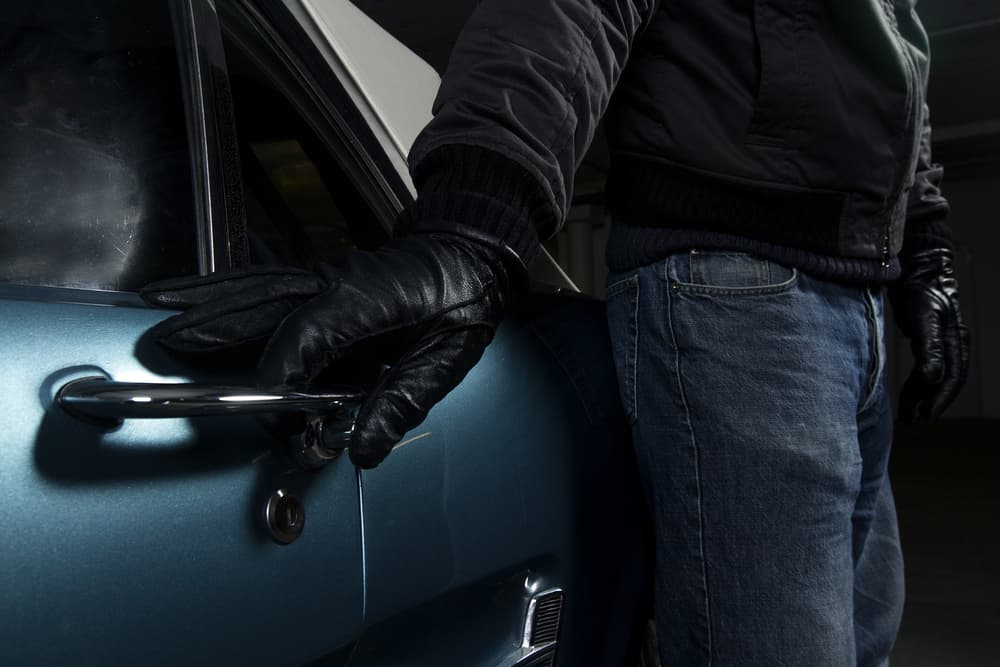
If you cross the monetary Rubicon, you may enter grand theft territory. As the name suggests, the stakes are quite high, and the consequences are more severe. Items of substantial value may result in a sizable loss for the victim and escalate a crime of theft from a misdemeanor to a felony.
This is no small matter for the accused. In some cases, an accused person can spend five or more years in prison if the amount stolen is substantially valuable.
Shoplifting Defenses
Your criminal defense lawyer may try to get your shoplifting charges reduced or dismissed with the following defenses.
The Defendant Did Not Intend to Steal the Merchandise
A strong accusation of shoplifting involves intent. Therefore, the prosecution must prove you committed the crime on purpose. When you’re shopping, you might take something accidentally.
For example, if a parent is trying to manage two or three kids in the grocery, they may pocket an item if they have to run after a toddler. When they check out, they may forget the pocketed item and walk out.
However, shoplifting implies that a defendant did not intend to return a product in a store. Let’s look at the following example:
A shopper places a six-pack of soda on the bottom of their shopping cart. They forget to add the item to the conveyor belt. They realize their mistake after reaching their car and putting groceries in their trunk. They intended to return the soda, but a security officer accused them with shoplifting before they could do so.
An Item is Concealed Accidentally
In some cases, shoppers may place an item in their pocket or shopping bag without thinking. A criminal defense lawyer may get your case dismissed if you absent-mindedly concealed an item but did not mean to do so. This is especially true if the value of the item is, say, about $5.00 to $10.00.
A Defective Self-Checkout Machine
Sometimes, if a customer goes to the self-checkout, items are accidentally scanned incorrectly. If this happens, the customer has no intent to steal the items that were not scanned properly.
An incorrect scan can happen if the item on the register is incorrectly priced or the barcode on the item does not correspond with the retail price on the U-scan. If you do not have a prior arrest record, your criminal defense lawyer may have your case dismissed in this type of instance.
Challenging the Evidence
Dismantling the case against you begins with challenging the evidence. Surveillance footage, eyewitness testimony, and how evidence is gathered can all be scrutinized to defend your case. If cracks emerge in the prosecution’s case—if doubt blooms—it can erode a charge’s foundation.
Demonstrating a Lack of Intent
To shoplift is to knowingly steal. If intent can be disputed—if an attorney can convincingly claim that an item was taken by mistake, then the charges may crumble under the weight of reasonable doubt.
Negotiating for Lesser Charges
Admitting to a lesser charge can be a calculated retreat to avoid the full brunt of the law. With a capable legal advocate at your side, a negotiation can temper the situation and lead to a reduced charge. Sometimes agreeing to pay restitution or returning the items stolen can lead to reduced charges.
If your attorney plea bargains a charge of shoplifting, the prosecutor may reduce the charge in return for a guilty plea.
Diversion Programs
Diversion programs represent the olive branch of the criminal justice system. For a first-time shoplifting charge, first-time offenders may, through their criminal defense attorney, agree to community service or probation.
Legal Irregularities
Every so often, the legal script has its irregularities. If protocols were breached during an arrest or investigation, or rights violated, they may offer a path to a dismissal.
Contact a Criminal Defense Attorney About Your Shoplifting Charge Today
When you are charged with shoplifting, you need to speak with a Clifton criminal defense attorney Talk over your situation, so they can resolve the situation fairly and equitably. By retaining legal counsel, you’ll experience better results and have the guidance you need to get through the legal process successfully.

Is Shoplifting a Felony or Misdemeanor?
You might say that shoplifting is a misunderstood crime. The offender steals items from a retailer without paying for them. While this may seem like a petty offense to some people, the charge can carry serious legal consequences. The charges a defendant brushes off may actually have very serious effects on their lives.
While shoplifting stays on your permanent record in some states, you may have to wait a while (about five years) to ask for an expungement (removal from your criminal record) after you’ve completed your sentence in other states.
That is why you must consult a shoplifting defense attorney in Wantagh, NY if you’re charged with a shoplifting crime. Make sure they have experience handling this type of legal defense so you can present the strongest defense possible to your misdemeanor or felony shoplifting charge.
Schedule a Free Initial Consultation Today!
Shoplifting Charges
Whether you’re charged with a misdemeanor or felony depends on:
- The value of the goods stolen
- The methods employed for stealing the merchandise
- The jurisdiction where the items were shoplifted
Each state has established what amounts apply and how an offender is charged for shoplifting.
Misdemeanor Shoplifting
First-time offenders who are caught stealing low-cost items (usually below two hundred dollars’ worth of products) frequently face a misdemeanor charge. The lower the value of the goods you take, the lighter the sentence.
You may need to spend some time in jail (6 months, in many cases, for first-time offenders), pay a fine, or pay restitution if you leave the store with the stolen merchandise.
Felony Shoplifting
If goods exceed certain values set by a state’s laws, shoplifting can be a felony crime. Likewise, penalties are more severe when the defendant has prior convictions.
Examples Of Shoplifting That May Surprise You
While some people think of shoplifting as stealthily pocketing an item and walking out of a store, shoplifting may also involve the following criminal activities:
Hiding an item in a Backpack or Bag. A shoplifter may hide stolen items in a backpack or shopping bag before exiting a store. Some shoplifters line the bag with aluminum foil so the security device at the exit fails to sound an alarm.
Price swapping. Switching tags is common, so the shoplifter can pay less for an item.
Undercharging. Sometimes, a shoplifter may know the cashier in a store who intentionally gives their friend a “discount.”
Concealing an Item by Boxing It Up. Some shoplifters place smaller and more expensive valuables inside a box that contains cheaper merchandise. They do this so they can pay less than the total value of the merchandise.
What a Prosecutor Must Show in a Shoplifting Case
Regardless of the type of theft used to shoplift, the prosecutor must show that the shoplifter intended to deprive the rightful owner of the value of the item(s) taken. If you mistakenly walked out of a store with an item, you may show that you did not mean to take the merchandise without paying for it. The prosecutor must prove beyond a reasonable doubt that you knowingly committed the crime to convict you.
A criminal defense lawyer who is familiar with shoplifting laws can benefit you, whether you allegedly walked out of a store with concealed merchandise or switched the price tag so you could pay a lower price.
Shoplifting Punishments: How High Do They Go?
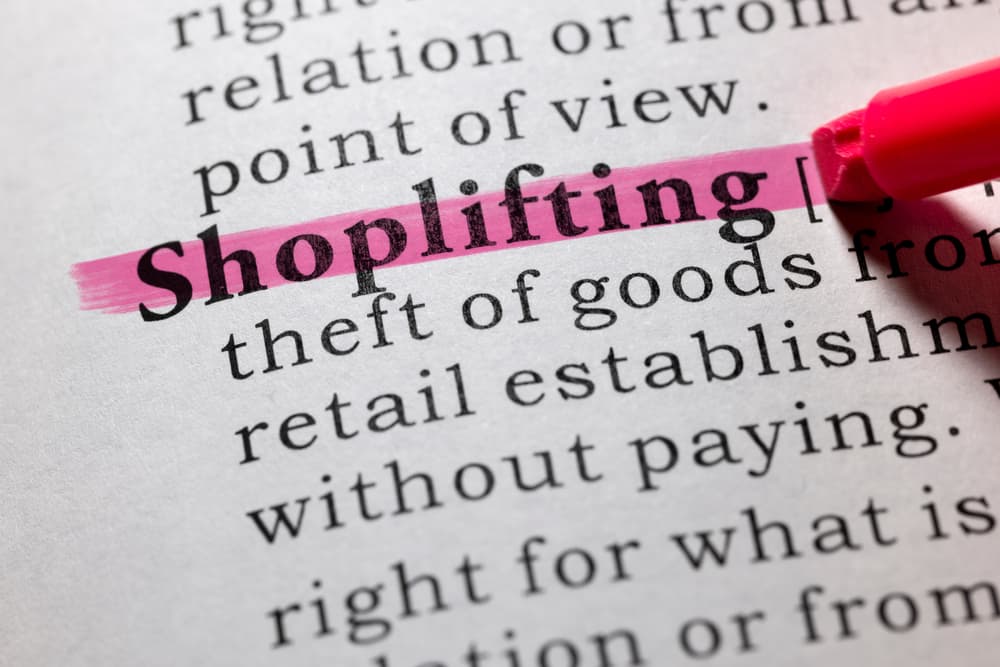
Shoplifting punishments are based on the amount of merchandise you allegedly stole. Therefore, the punishments for jail time, fines, and penalties are based on the dollar amount of the shoplifted goods. Again, you may have to go to jail for as long as six months, even if you take a smaller amount (around $200), so you need to talk to a criminal defense attorney about the charge.
The more you steal, the higher the fine and jail time. For example, you can end up spending 18 months in prison if you’re caught stealing $300 in goods and as much as five years in prison if you are nabbed with over $500 in items. Prosecutors won’t hesitate to recommend you spend ten years in jail if the value of the items is $75,000 or more.
Naturally, it depends on the jurisdiction charging the shoplifting. Fines can range from $1,000 to $150,000, again, depending on the value of the shoplifted merchandise.
While many people believe shoplifting is a minor offense mostly committed by teenagers, the law takes this crime very seriously, and many people face harsh penalties for conviction. Always hire a criminal defense lawyer for shoplifting charges.
How a Criminal Defense Attorney Can Help You If You’re Charged with Shoplifting
If you’ve been charged with shoplifting, a criminal defense attorney who handles shoplifting cases may be able to get the case dismissed, especially if the dollar amount is low and it’s your first offense.
They may also negotiate a plea bargain with the prosecutor to reduce the charge and save you from going to jail. When you have a criminal defense lawyer at your side, you can turn a bad and unexpected experience into a more positive outcome. Don’t move forward without seeking legal counsel. You
Contact a Criminal Defense Attorney About Your Shoplifting Charge Today
To call shoplifting “just a misdemeanor” paints an incomplete picture of its impact on individuals and their futures when they face shoplifting charges and convictions.
When you are charged with shoplifting, various levels of charges are possible, from minor infractions to major felonies, each with a different degree of seriousness. Not only do courts look at the dollar amount stolen, but they also look at past offenses and how the items were taken. Always remember there are ways to challenge and potentially reduce your shoplifting charges by challenging the value of the merchandise or the validity of the charge itself.
The sooner you contact a criminal defense lawyer, the better your chances of receiving better treatment and a fairer outcome. Don’t downplay the seriousness of the crime. Depend on defense counsel to see you through an otherwise difficult and confusing time.

What are the Penalties for Shoplifting in New Jersey?
Did you know that shoplifting is one of the most common crimes in New Jersey? While most people don’t view the charge as serious, they will soon find out, if arrested, that they’re facing some severe penalties. That’s why you’ll need to contact a criminal defense attorney who regularly handles shoplifting cases if you’re charged with the crime.
The law draws the line between a misdemeanor and felony based on the dollar amount of merchandise stolen. If you steal more than $200 in merchandise, the charge becomes a felony.
New Jersey’s Monmouth Mall, Jersey Shore Premium Outlets, Quaker Bridge Mall, and Willowbrook Mall are some high-profile shoplifting shopping centers that arrest shoplifters. In about five percent of shoplifting cases nationwide, kleptomania, which affects primarily females, is blamed for the activity.
N.J.S.A. 2C:20-11 states that a convicted shoplifter may face a fine, time in jail, and a criminal record if caught. The charge can also affect the immigration status of a non-U.S. citizen. With the assistance of a shoplifting lawyers, you can avoid the fallout of a shoplifting charge.
Schedule a Free Initial Consultation Today!
Forms of Shoplifting in New Jersey
N.J.S.A. 2C:20-11 highlights five types of shoplifting activities in the Garden State.
Taking merchandise on purpose. If a defendant takes merchandise from a store on purpose with the intent to deprive the owner of an item’s value, they can be charged with shoplifting.
Concealing items with the intent to avoid payment. People who conceal merchandise from view with the idea of stealing it can also be indicted for shoplifting.
Changing or transferring a price. If you tamper with price tags, this is also a form of shoplifting. You can also be arrested for this offense if you remove a price tag.
Transferring merchandise into a container or other conveyance to shoplift. Some shoplifters come into stores with a baby carriage to steal merchandise. They use a booster bag lined with aluminum foil so they can avoid detection from electronic security devices when they leave the store. They may also use a backpack, a shopping bag, or a garment with pockets for this purpose.
Under-ringing merchandise is also considered shoplifting. If a cashier intentionally rings merchandise so it does not reflect the actual retail value, they may be charged with shoplifting along with the customer. A technically savvy customer may attempt to under-ring merchandise at a “U-Scan.”
Under-ringing covers merchandise leaving a store, so don’t confuse this practice with preparing a fraudulent refund receipt, which covers items that a customer returns to the retailer.
Penalties and Fines
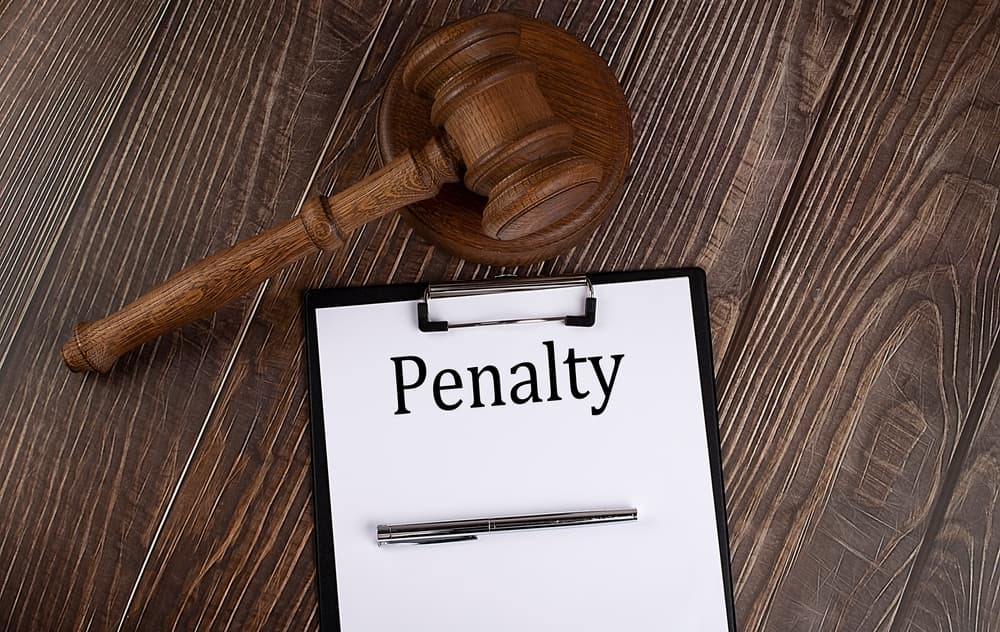
Again, what you pay in penalties and fines depends on the amount of merchandise you steal, if the crime is a first offense, and whether you’re an adult or minor. Minors are not subject to the same penalties that adults face when caught.
They may go to a juvenile detention center. However, courts usually focus on a diversion program rather than confinement. They may order the minor to pay restitution, perform community service, or serve probation.
Shoplifting Offenses
Each listed offense below is based on the amount of stolen merchandise.
Disorderly Persons Offense
A disorderly person’s offense is charged when the alleged shoplifter steals under $200 of merchandise. If you’re convicted of this charge, you can spend as much as six months in jail and pay a fine of up to $1,000.
Fourth-Degree Offense
If you steal or shoplift items valued between $200 and $500, you can face a prison term of 18 months and a fine of up to $10,000.
Third-Degree Offense
If the merchandise you shoplift is between $500 and $75,000, you’re facing a felony and a prison term of three to five years. You may also have to pay a fine of up to $15,000.
Second-Degree Offense
Shoplifting items worth more than $75,000 can result in a five- to ten-year incarceration and a fine of up to $150,000.
Shoplifting and Loss Prevention in New Jersey
Many of the malls and large department stores in New Jersey hire loss prevention staff members to handle problems with shoplifting at Westfield Garden and Short Hills in retailers like Macy’s, JCPenney, and Bloomingdale’s.
Steps to Take if You’re Accused of Shoplifting
- If you’re caught allegedly shoplifting, the store security, a retail associate, or a store manager might try to get you to confess – whether they thought you shoplifted or intended to steal an item. The best stance to take is not to say nothing.
- Don’t discuss the situation until you hire a criminal defense lawyer. Let your accuser know that you wish to speak to an attorney.
- Follow the instructions of the police if they are called to deal with the shoplifting incident. Follow the officer’s request – providing your I.D. or contact details. Just don’t admit to anything or sign any type of document. Be polite. Don’t get angry. Stay calm and comply.
How Stores May Handle First-Time Shoplifters
A store may handle a first-time shoplifter by banning their shopping privileges or demanding the shoplifter pay the legal costs involved in taking the case to court. If a shoplifter leaves the store with merchandise, they may have to pay the retailer restitution.
The Civil Demand Letter
Whether or not the police are called, it is usual for stores, especially larger retailers, to send a civil demand letter. This letter demands payment of a civil fine, including a payback of the stolen merchandise. The store may also demand the shoplifter cover expenses for loss prevention employees or legal fees.
The letter allows the accused person to take care of the issue without going through further civil or criminal proceedings. If you receive a letter, just make sure you speak to a criminal defense attorney first.
How a Criminal Defense Lawyer Can Help You If You Get Charged with Shoplifting
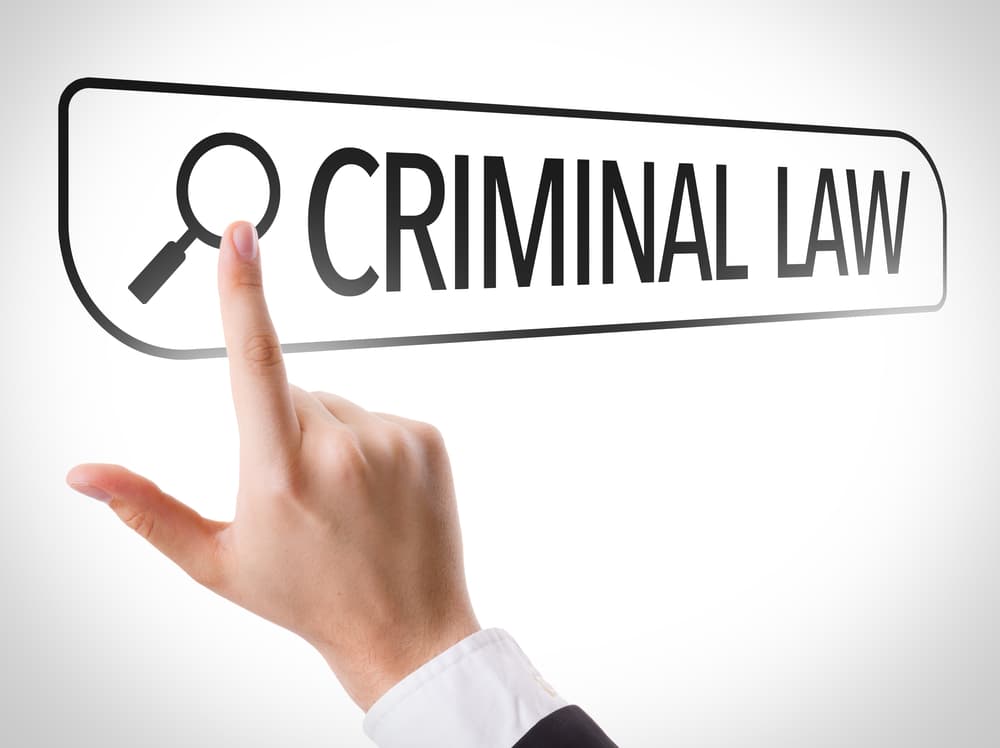
It’s important to contact a criminal defense attorney if you are charged with any form of shoplifting. They can represent you in court and help reduce your penalties.
An attorney can explain the charges to you. They will investigate all the factors of your case, collect and analyze the evidence, and identify any possible weaknesses in the prosecution’s case.
Depending on the severity of the shoplifting charge, your lawyer can negotiate the charge down or even have the case dismissed. Should the case go to trial, an attorney will prepare and present the defense, cross-examine witnesses, and develop a compelling argument on your behalf.
If you get convicted, an attorney will serve as your legal advocate – presenting mitigating factors or arguing for more lenient sentencing, such as probation or community service.
In some cases, defendants may wish to appeal their verdict. If this happens, a lawyer will direct you through the appeals process and serve as your representative in a New Jersey appellate court.
Hire a New Jersey Criminal Defense Attorney Now
While shoplifting might not seem like a big deal crime, it can have serious repercussions. Ensure you retain the services of a New Jersey criminal defense attorney who handles shoplifting cases. Doing so will stack the odds in your favor.
